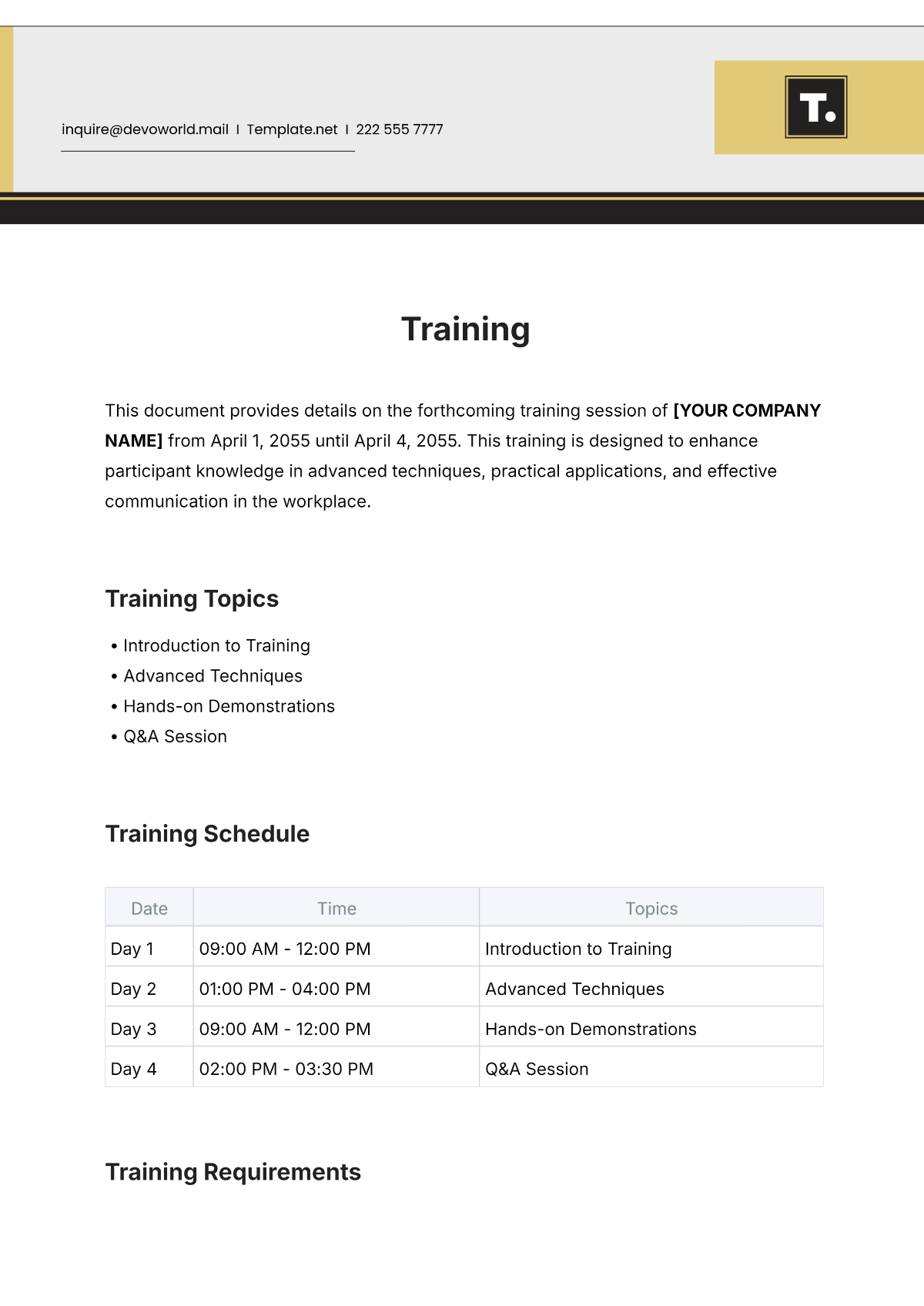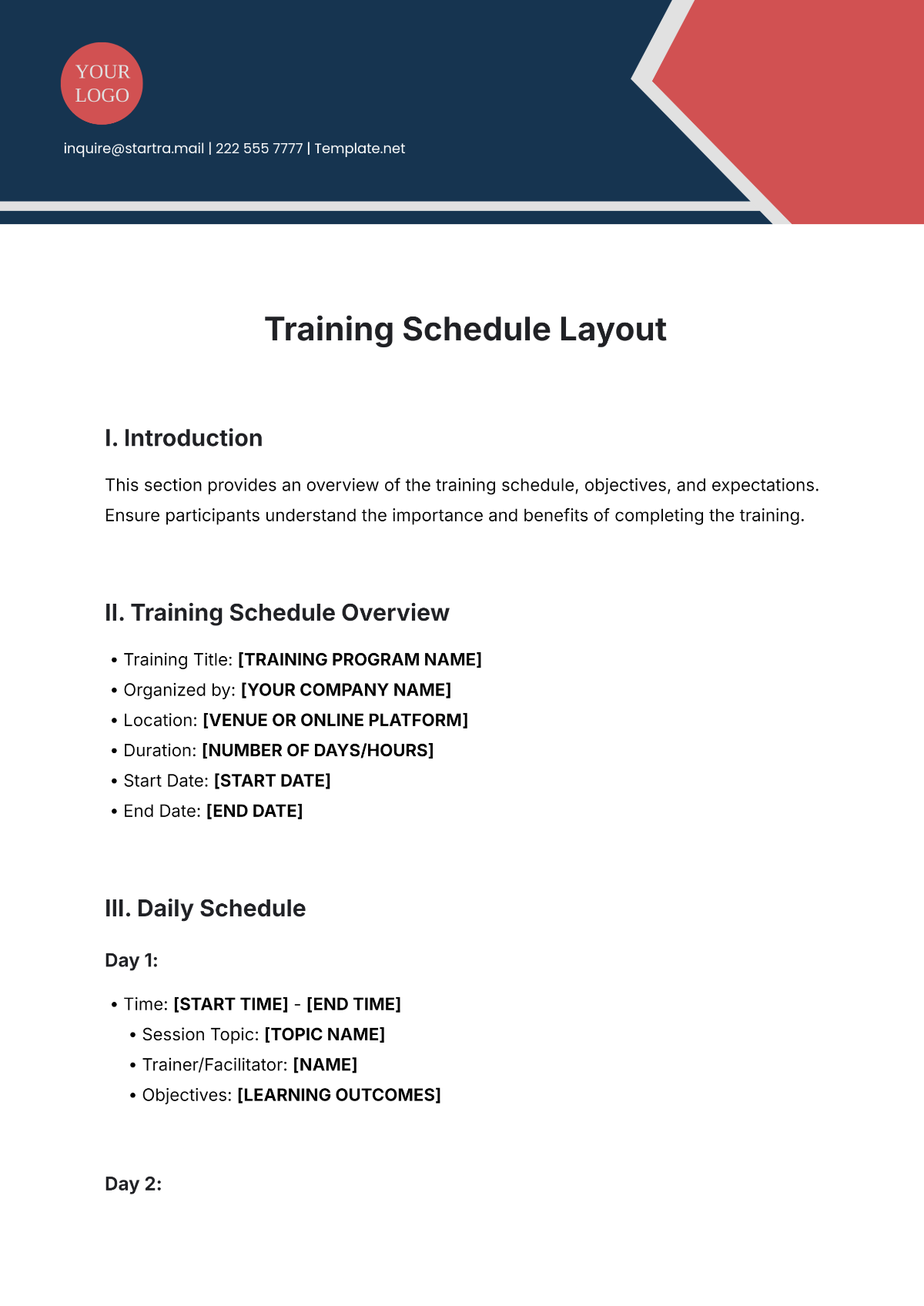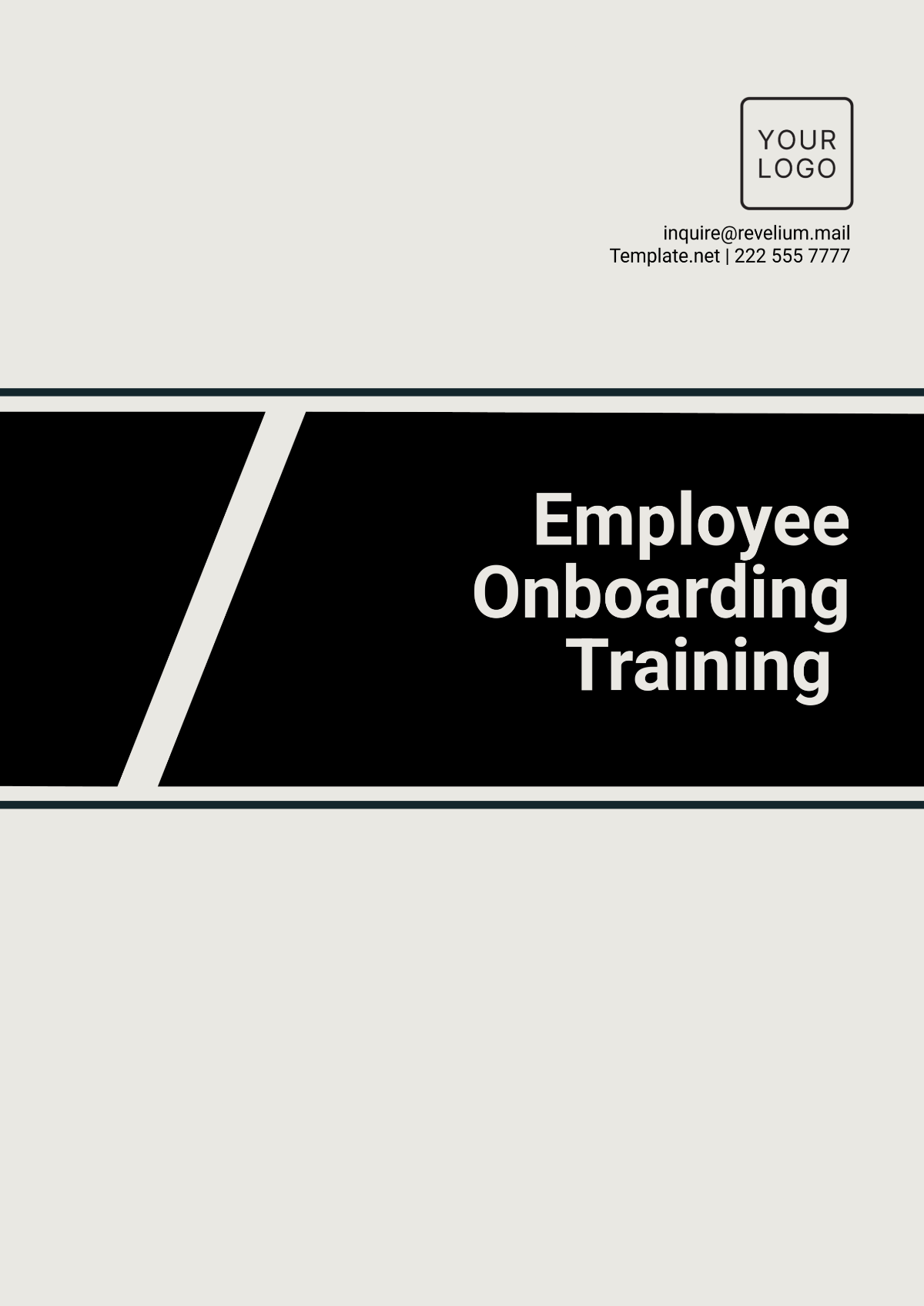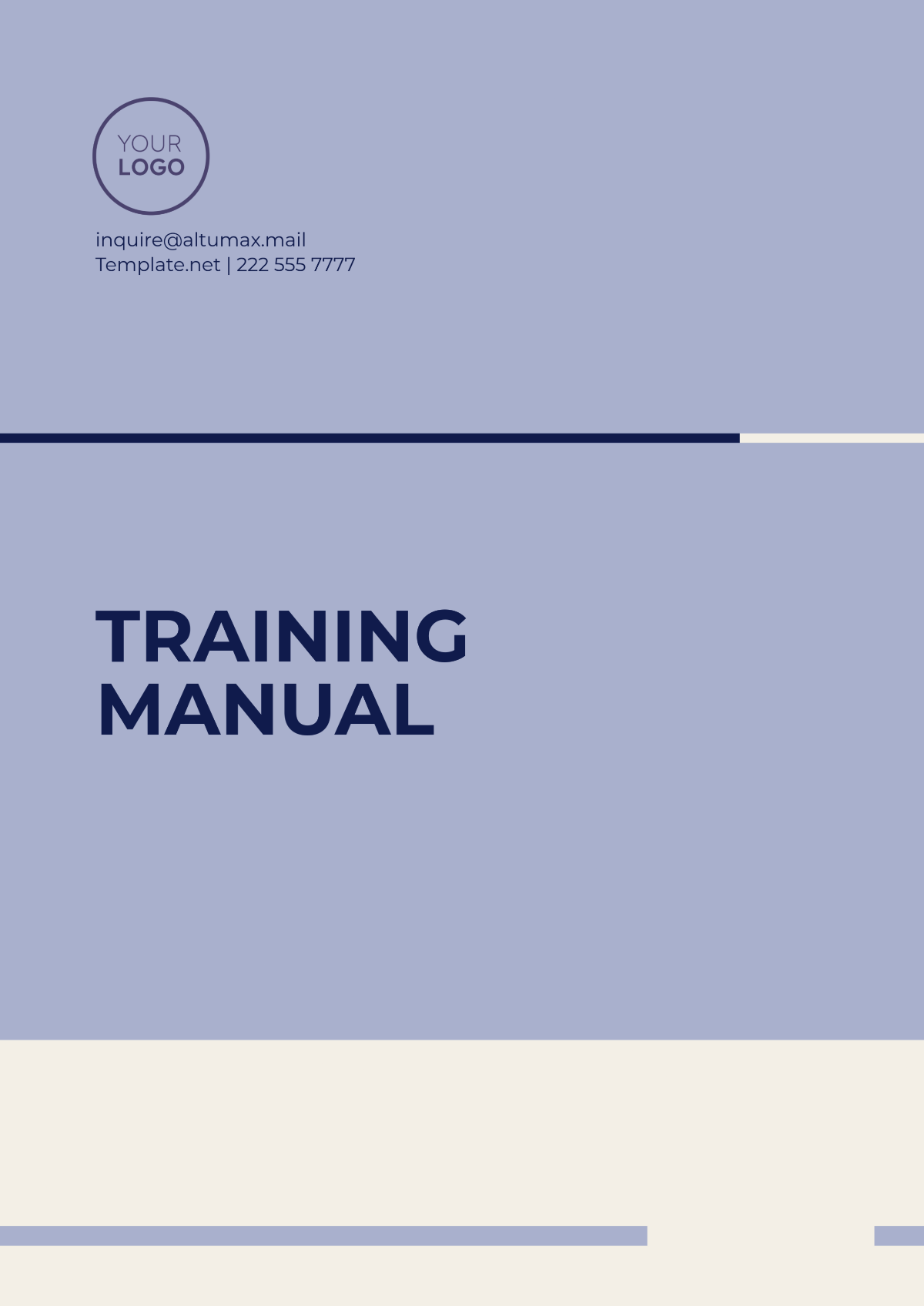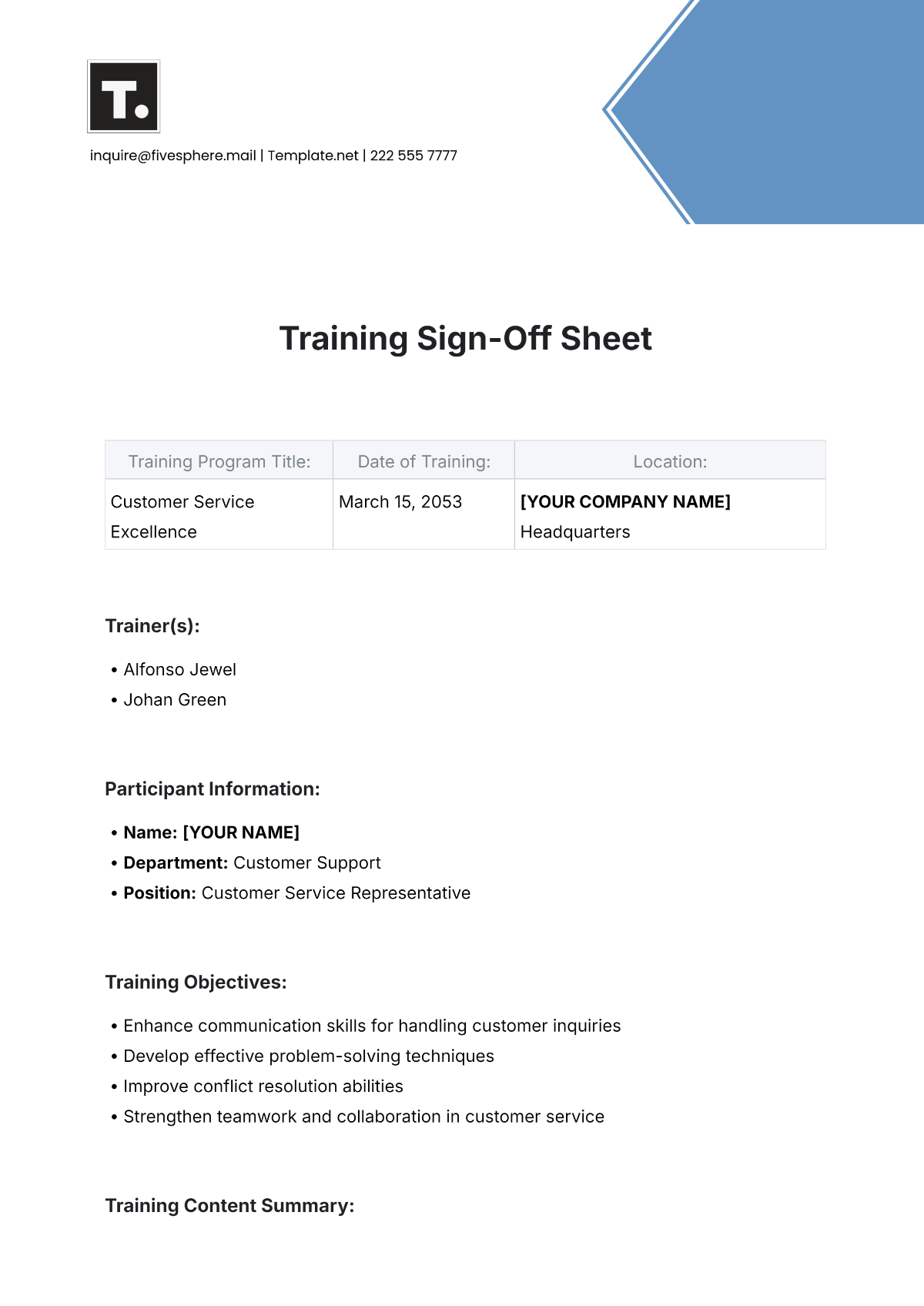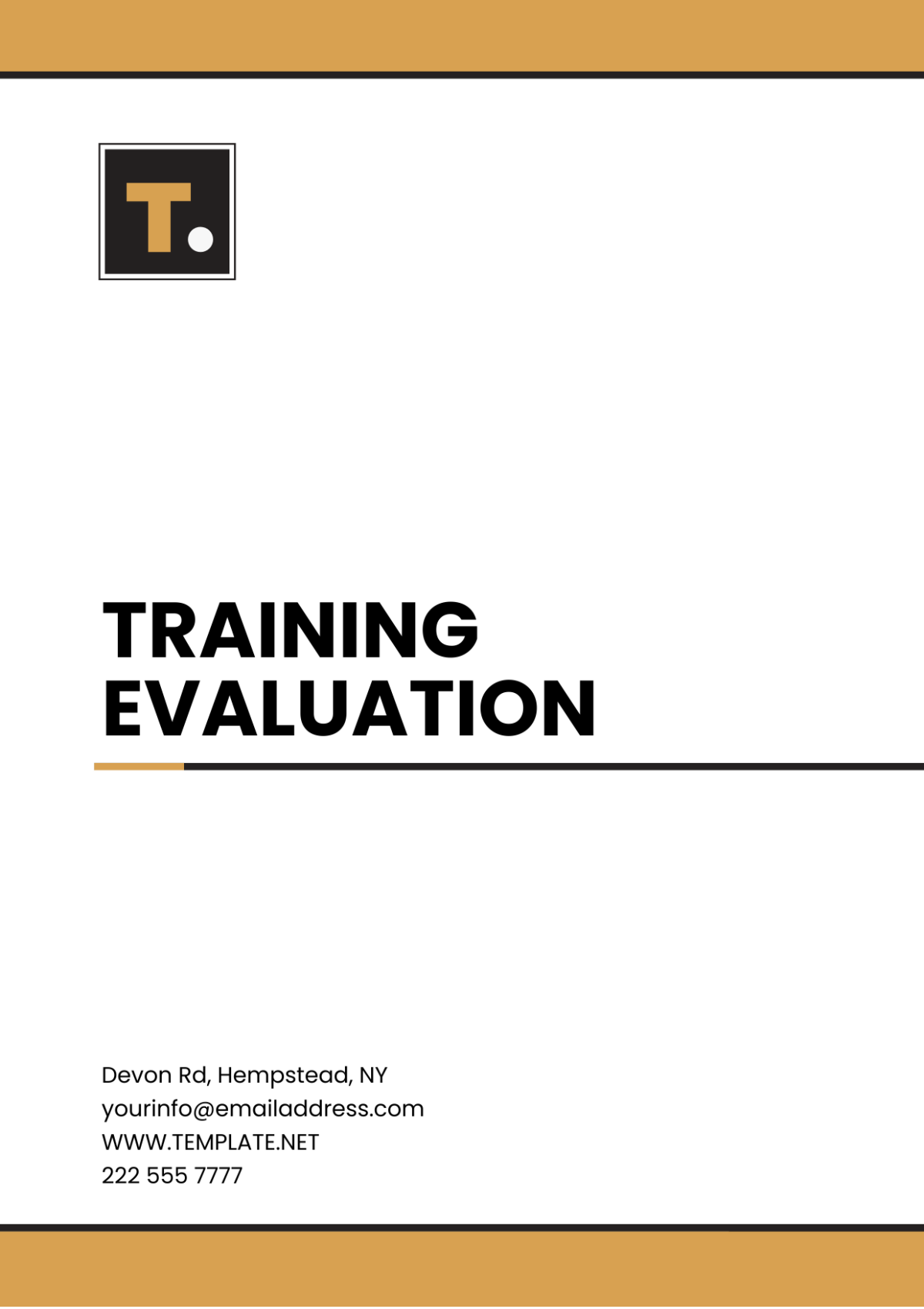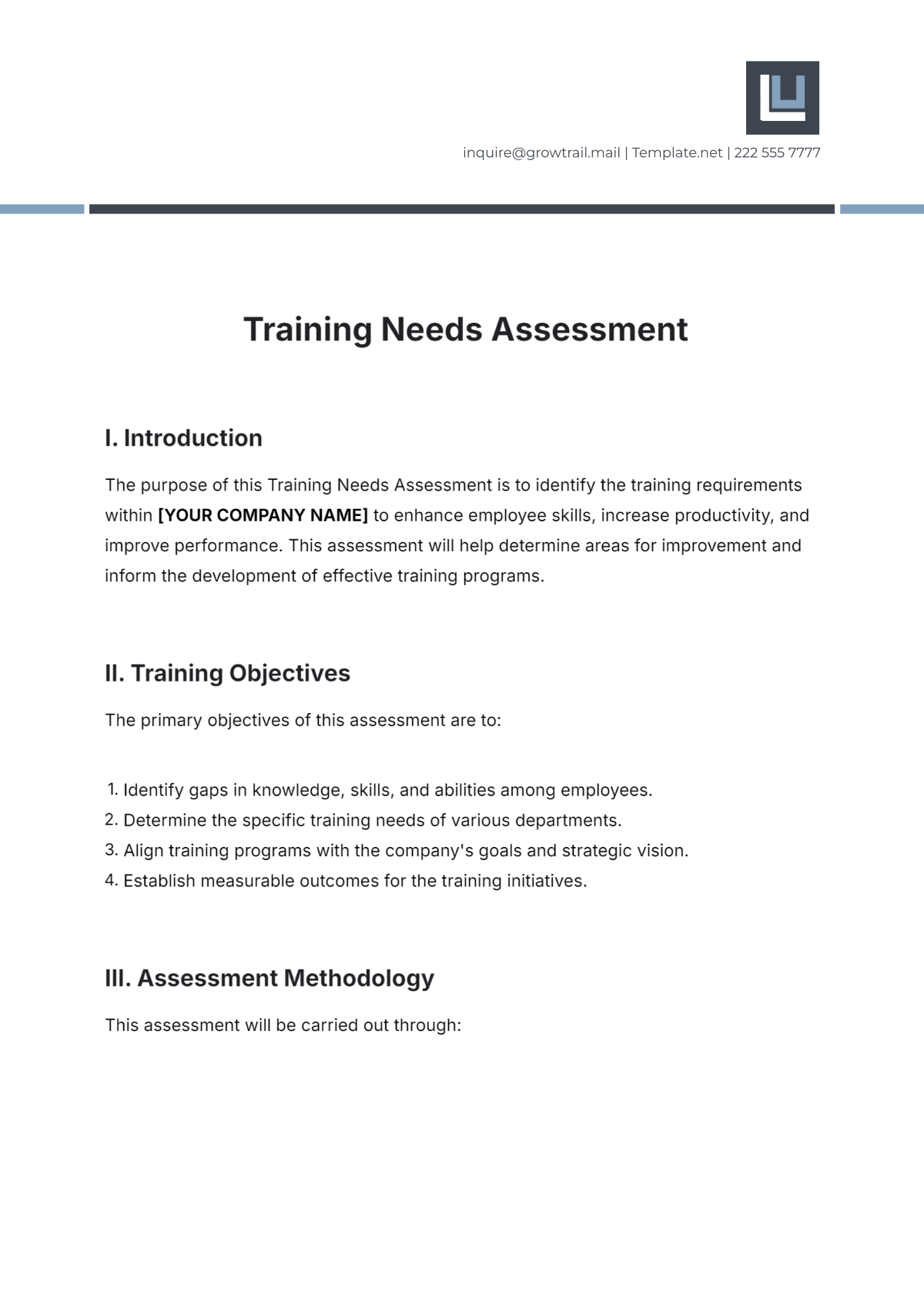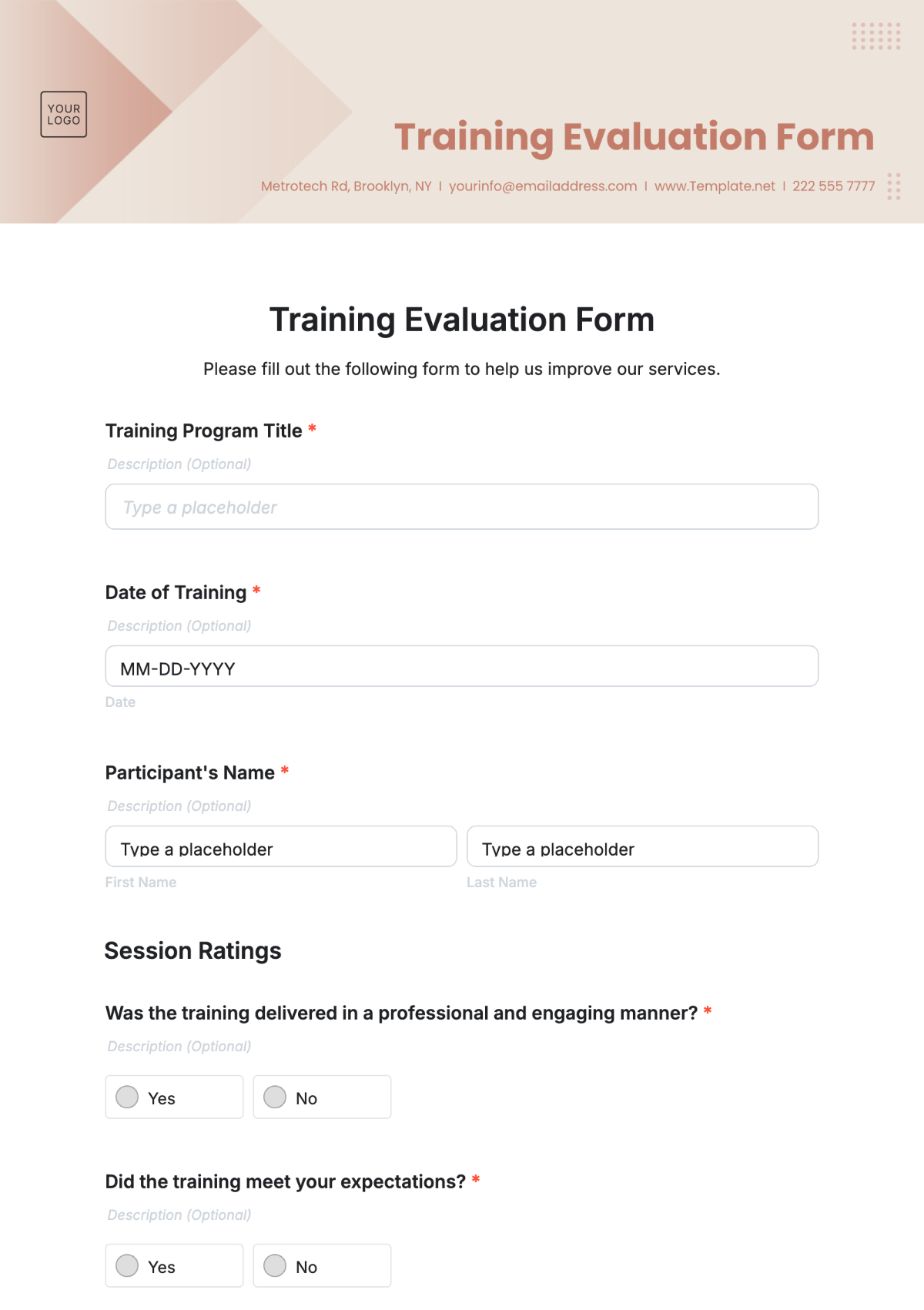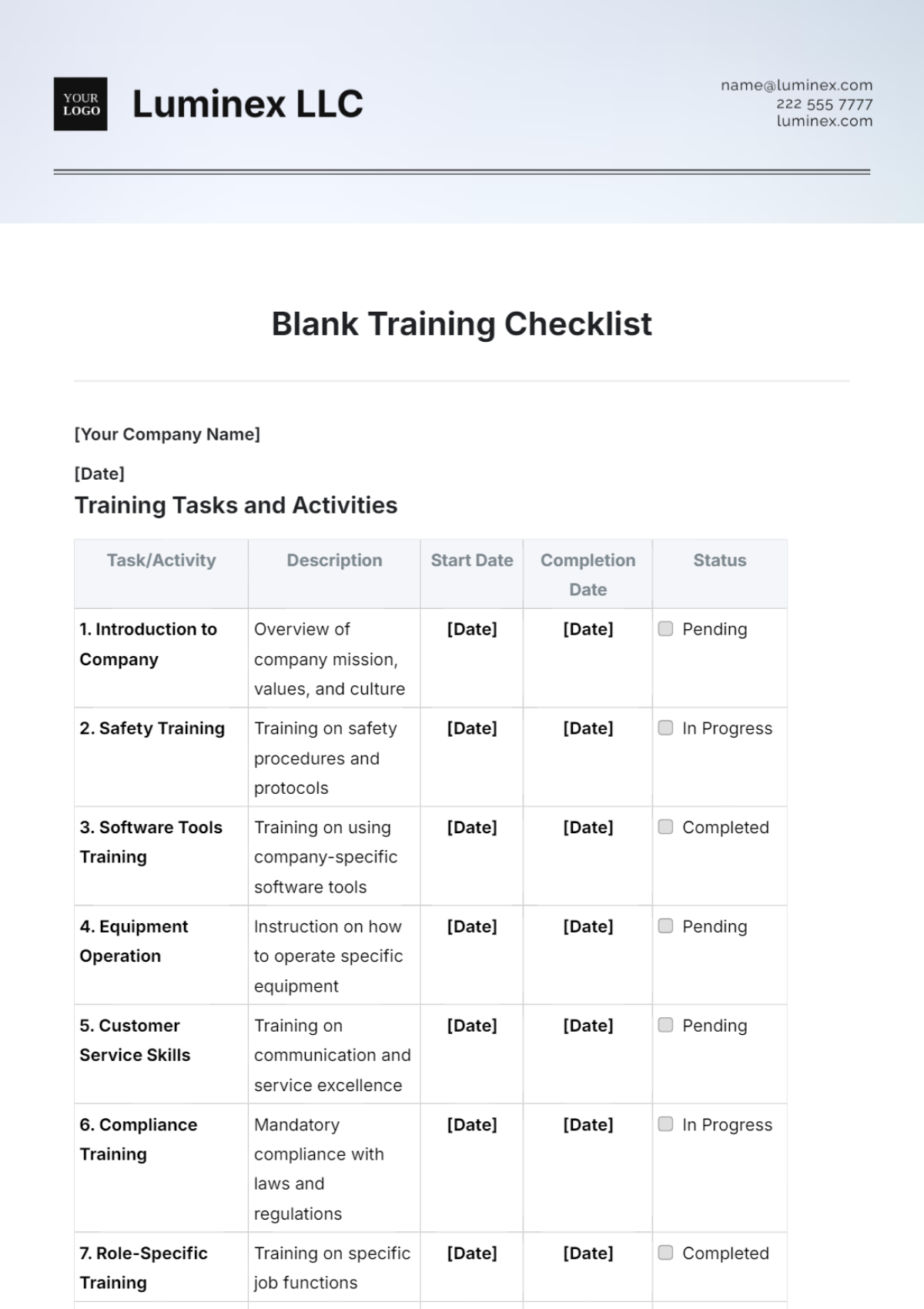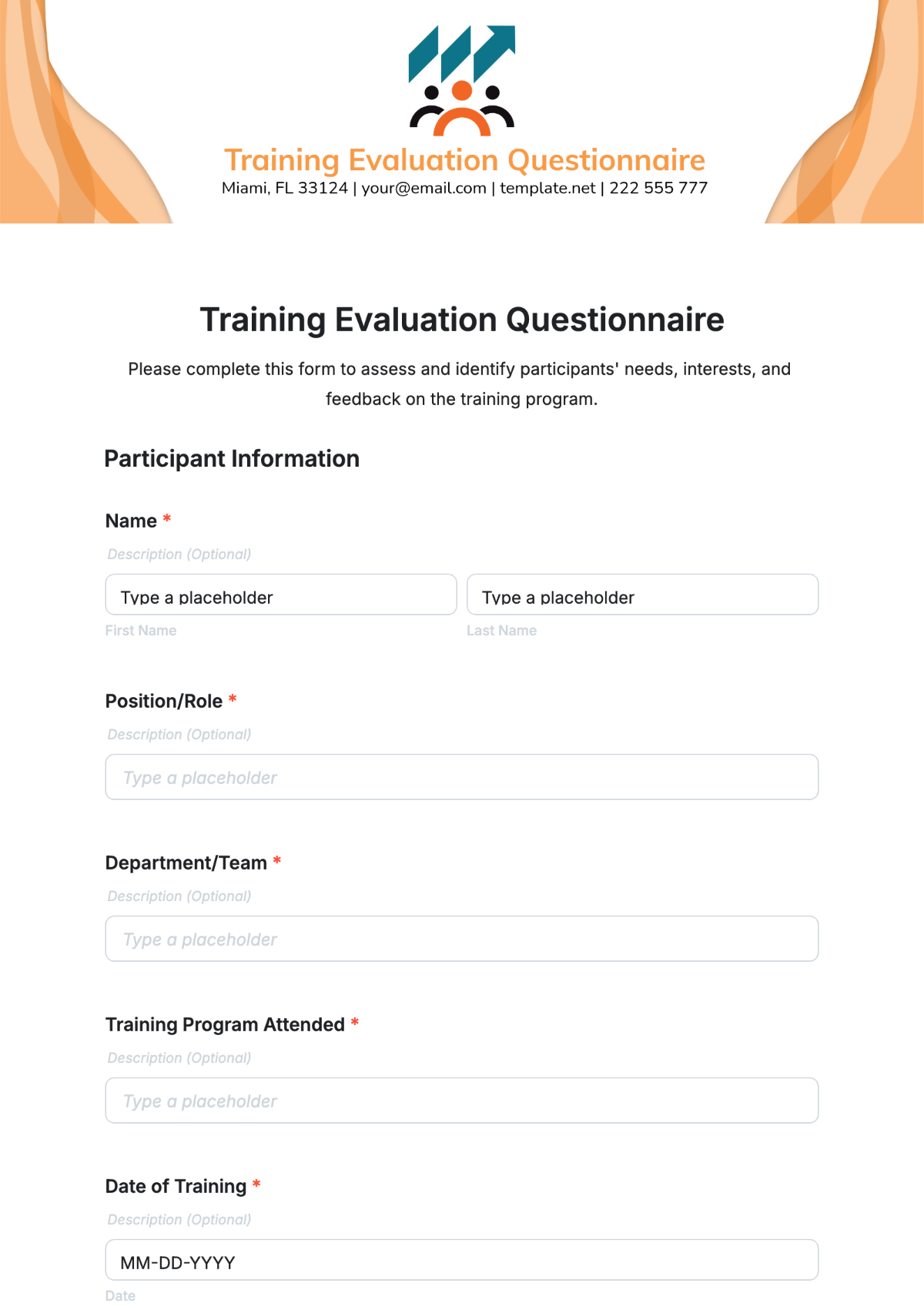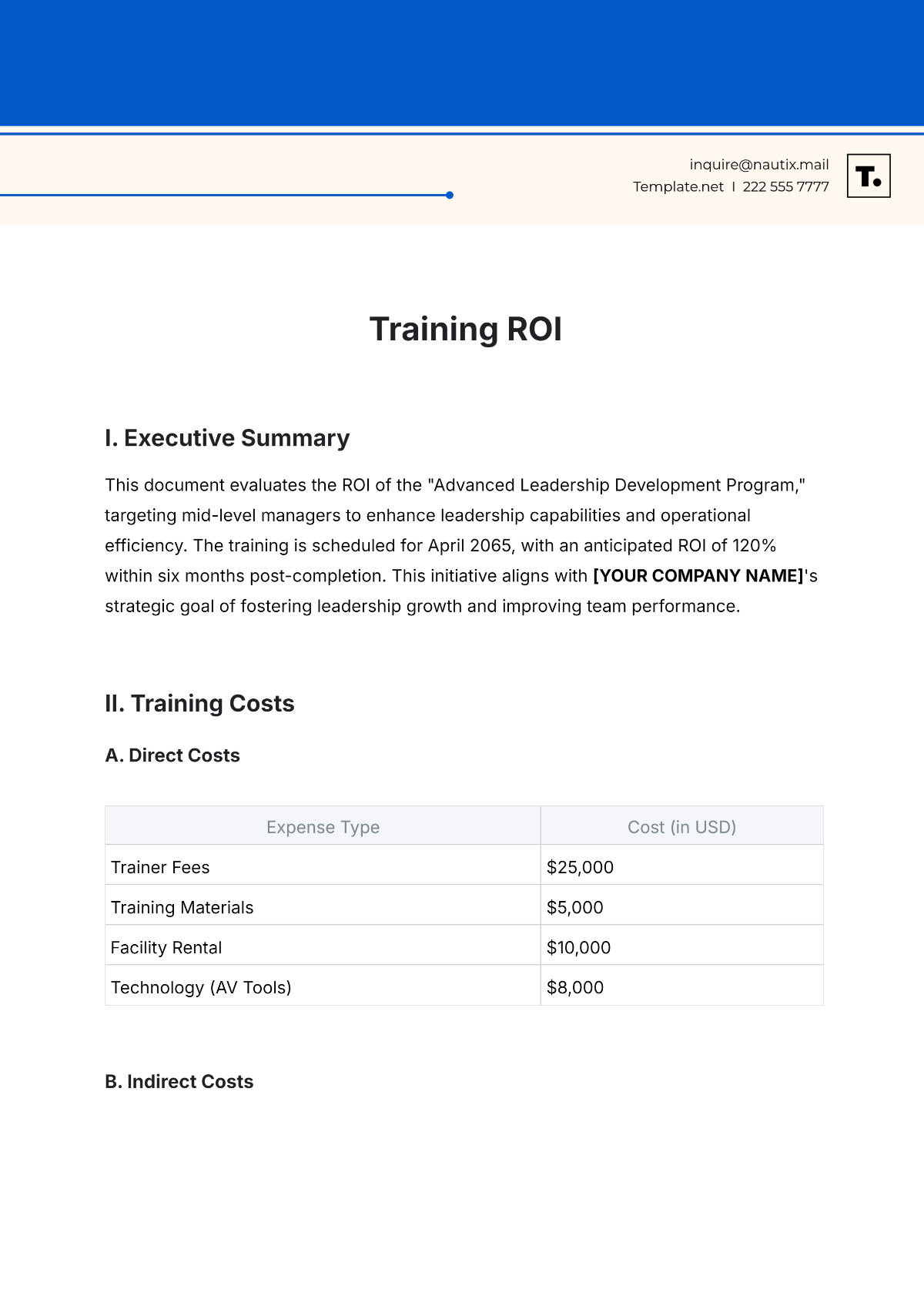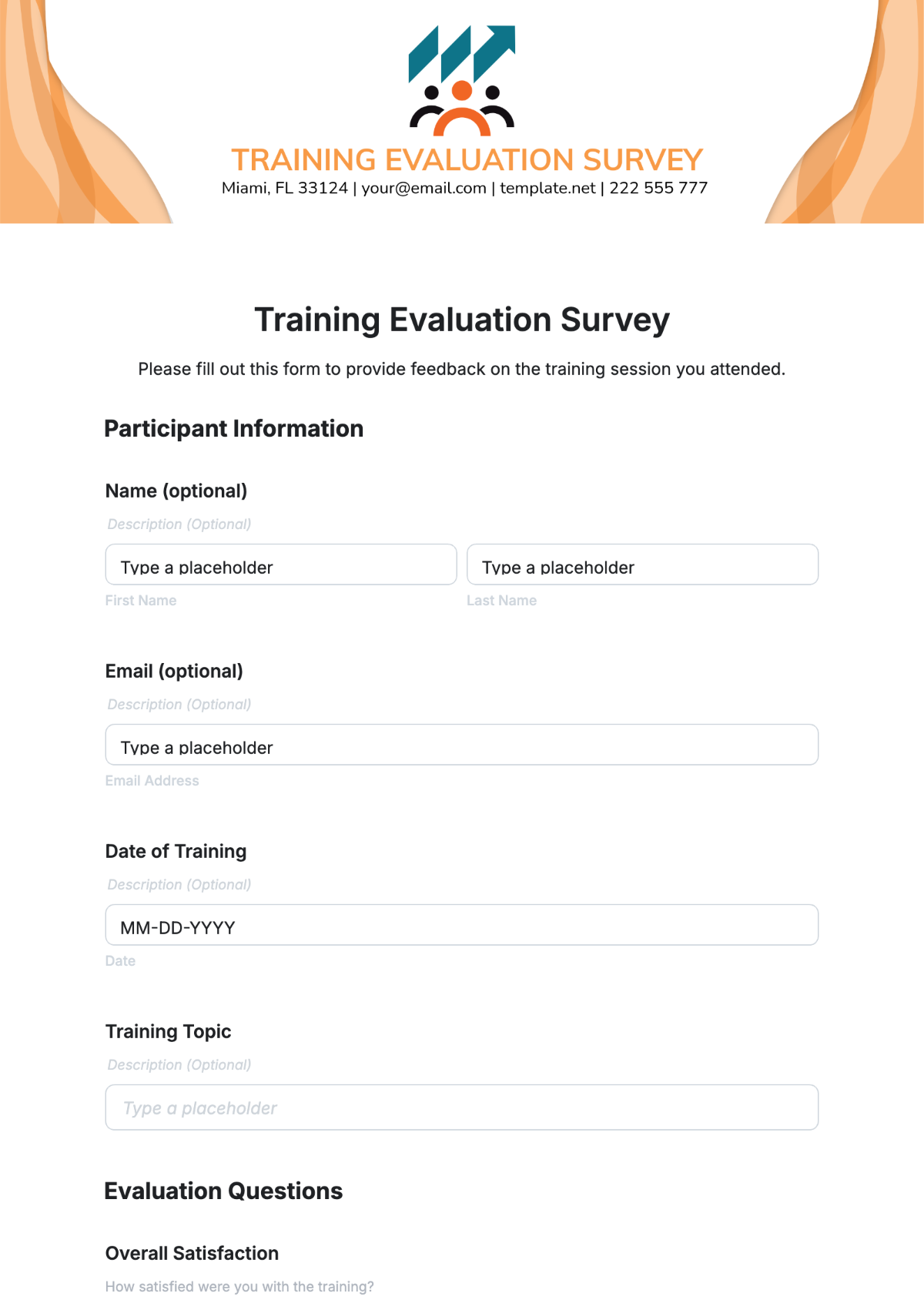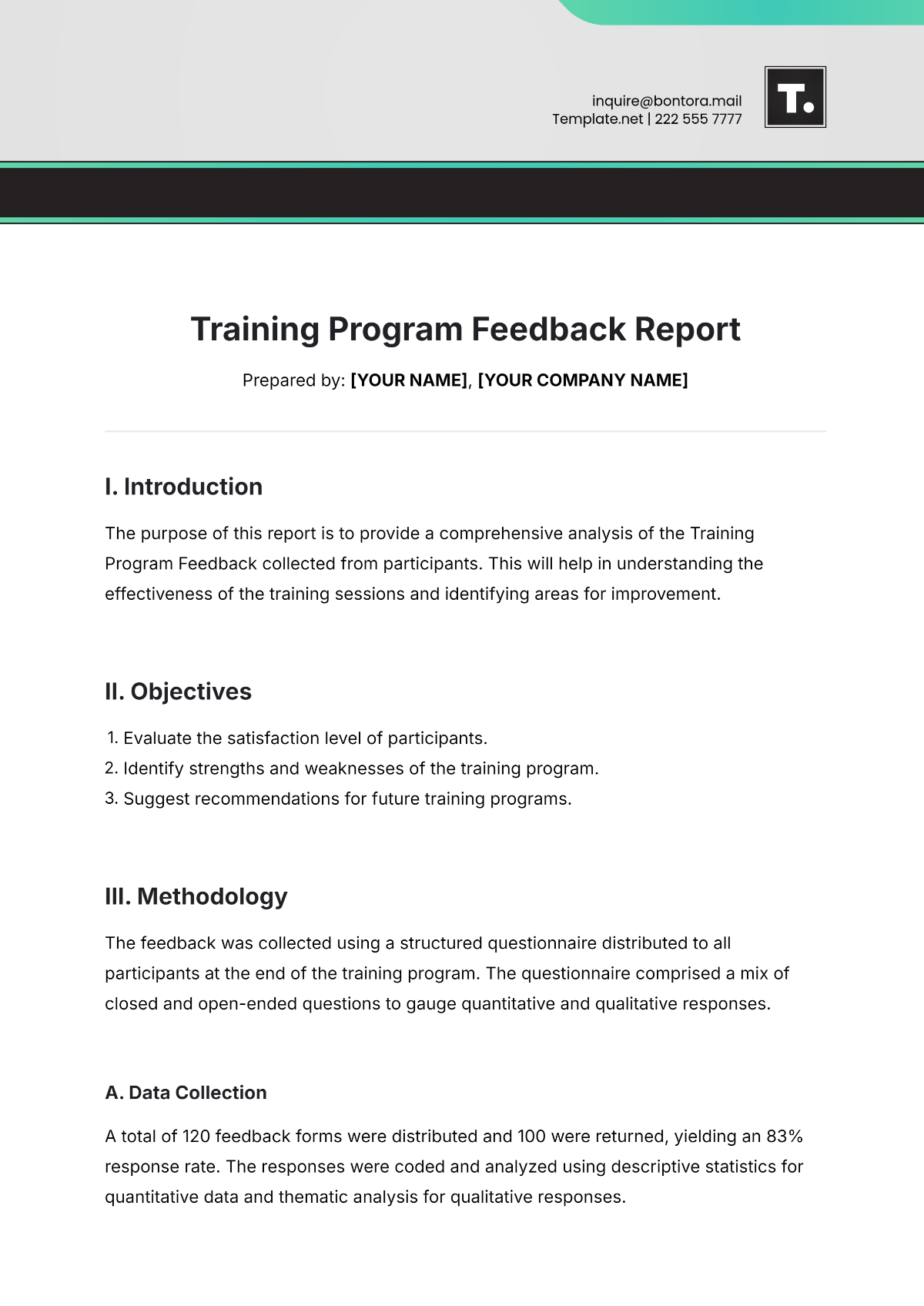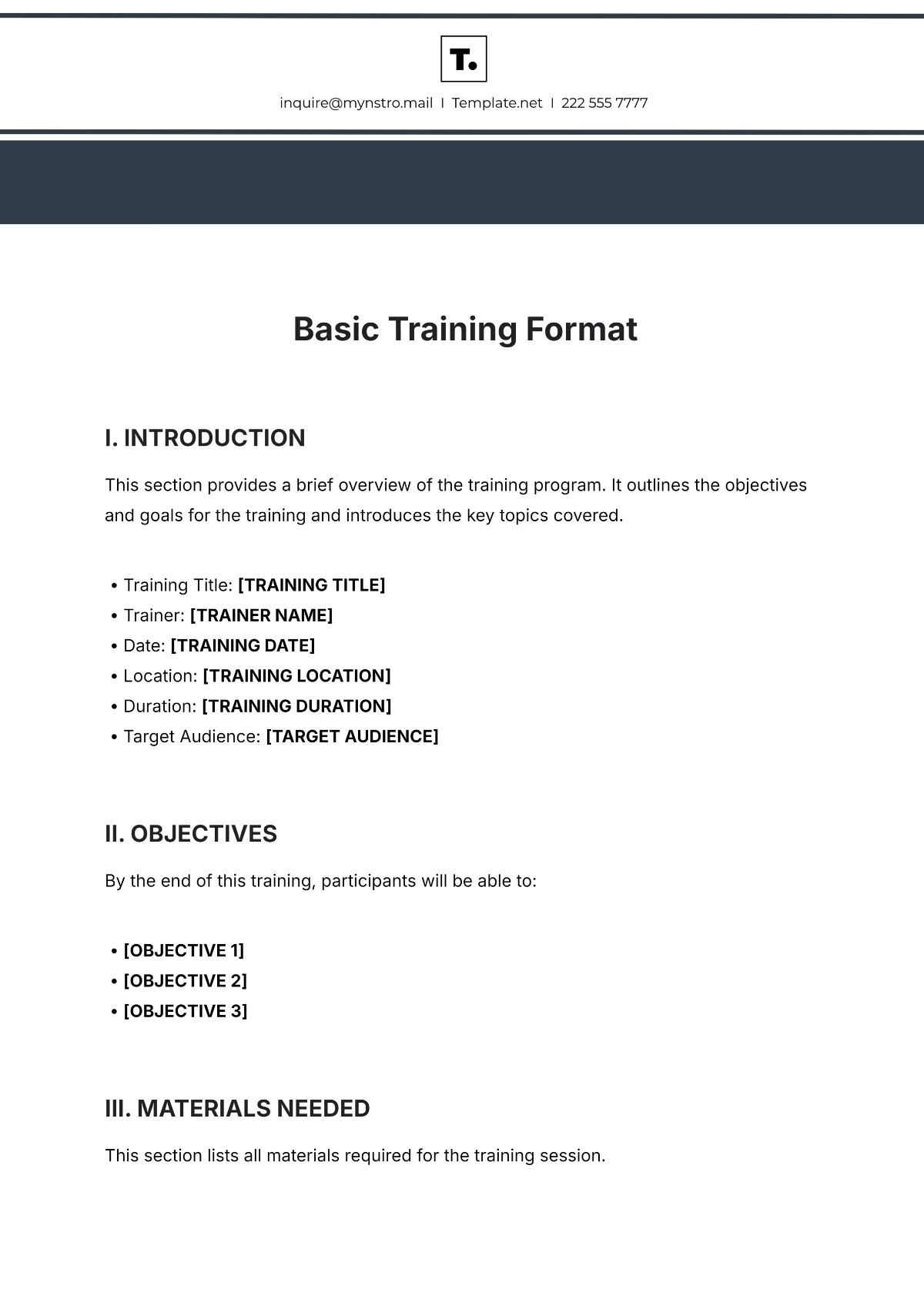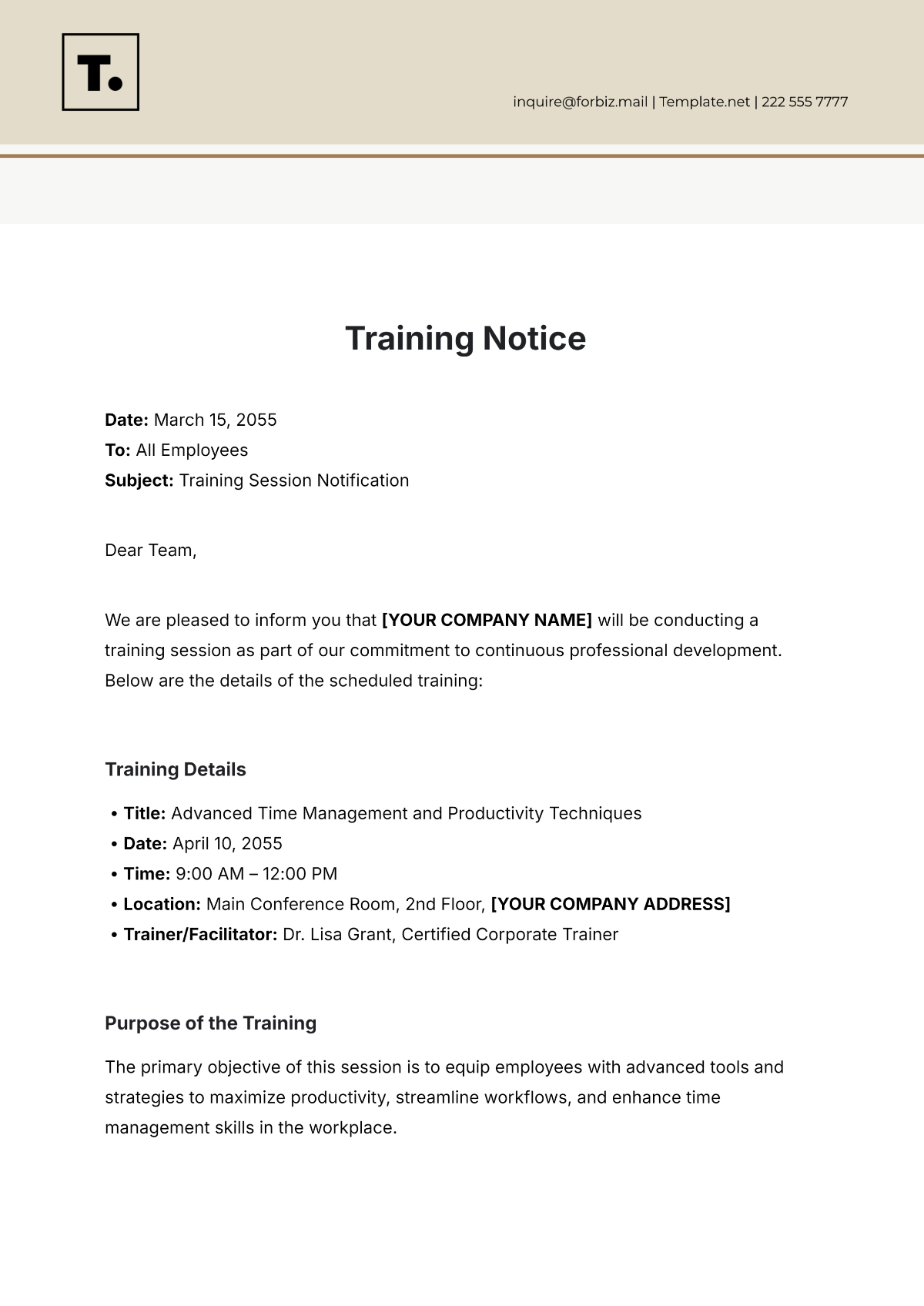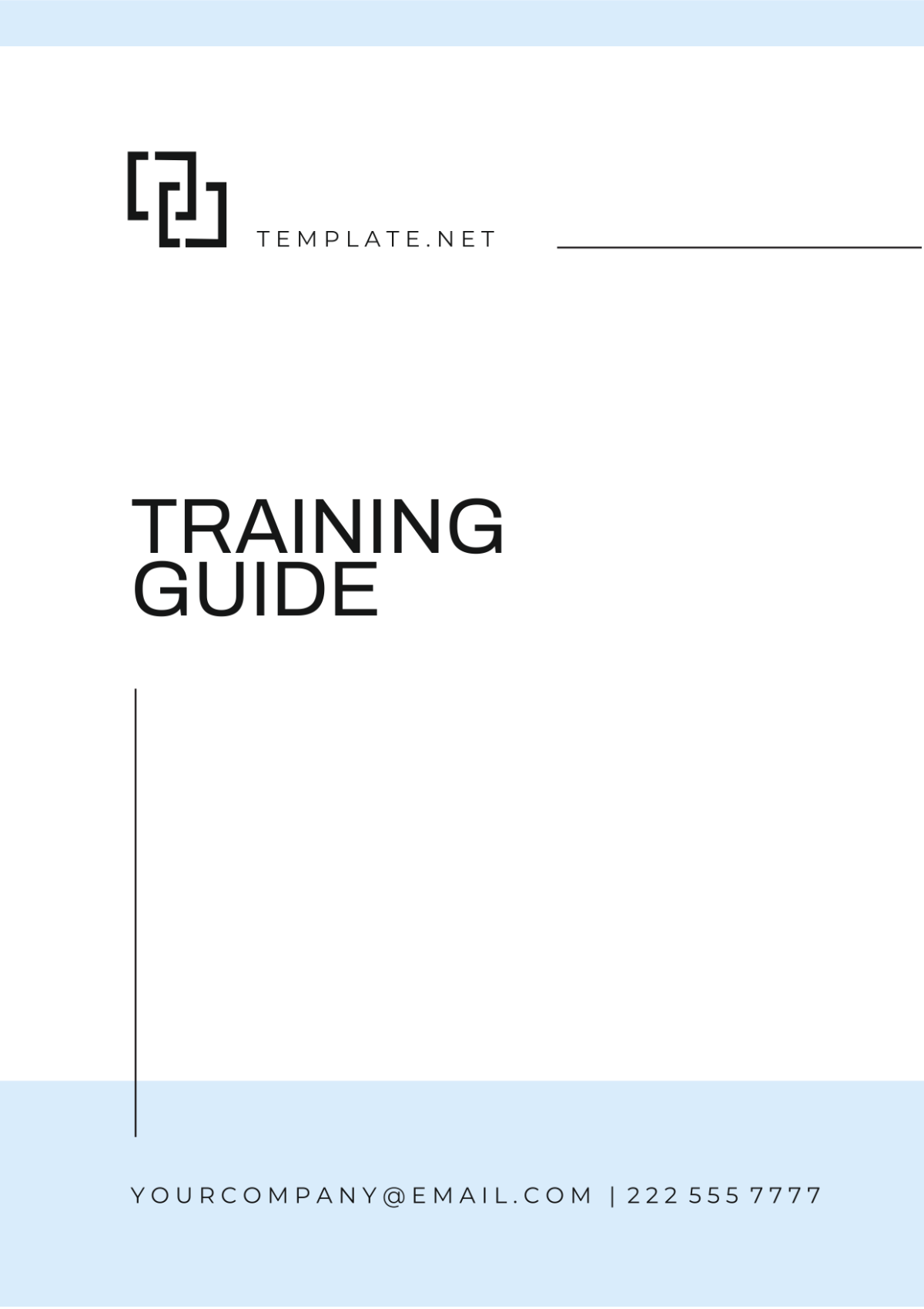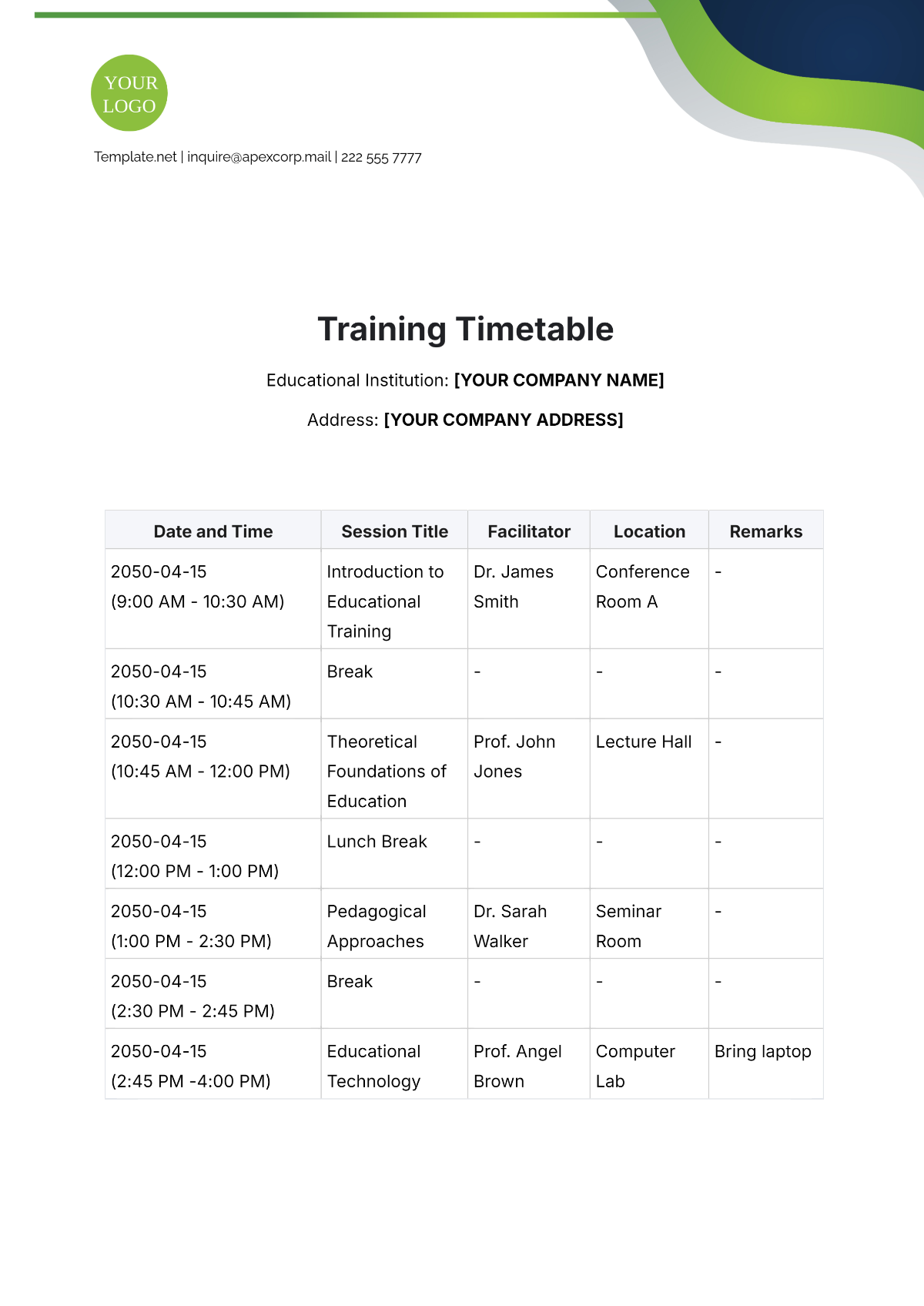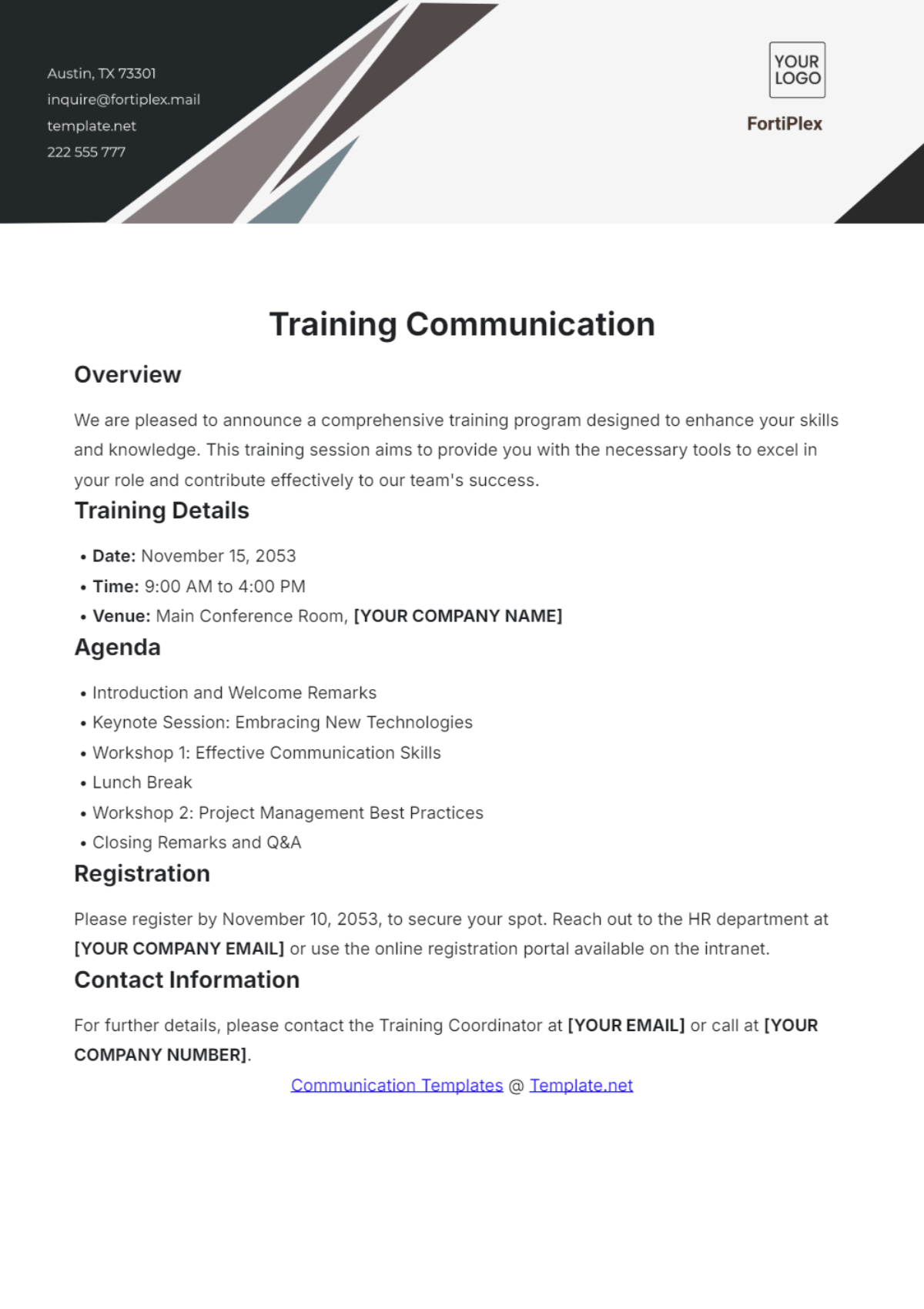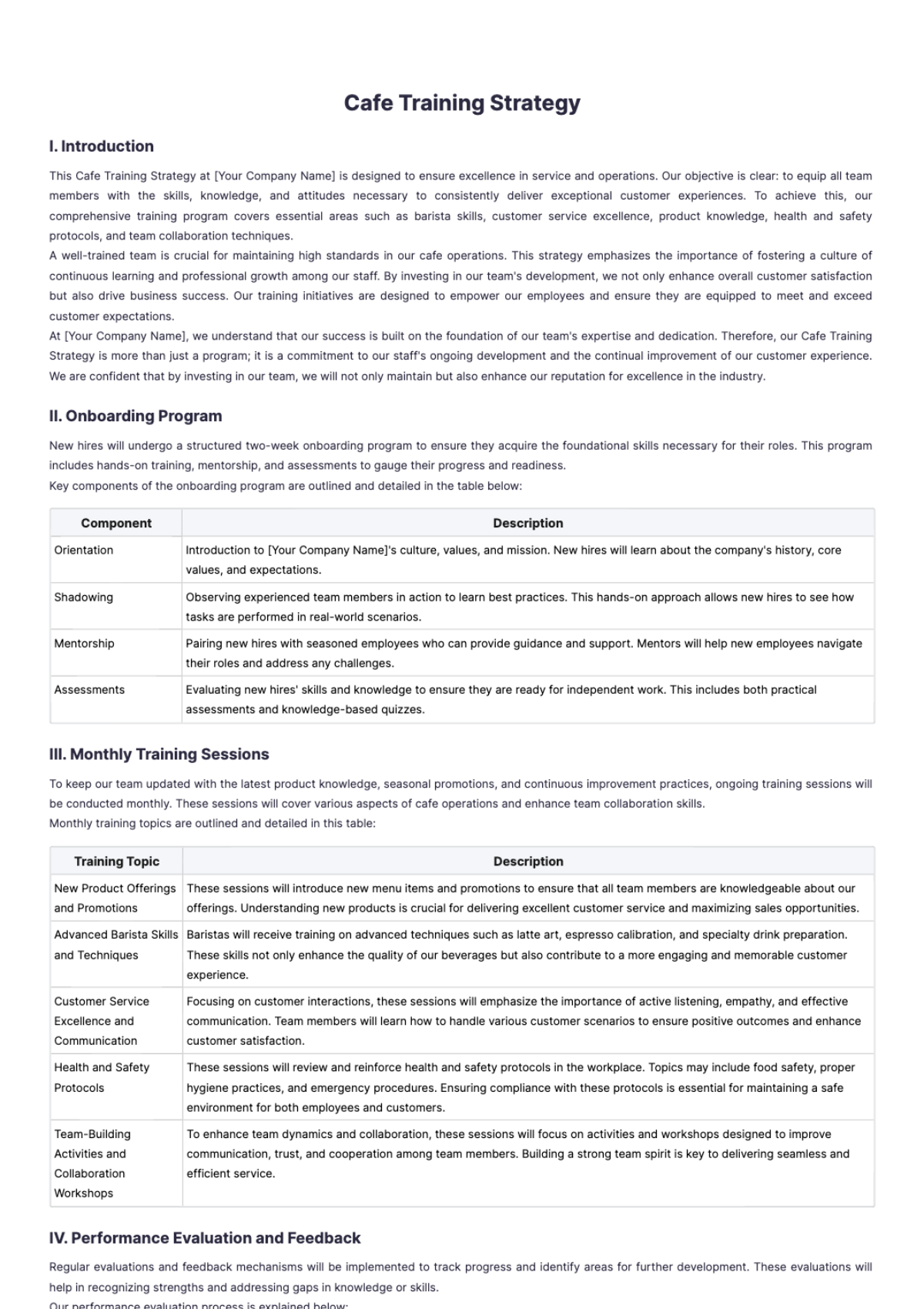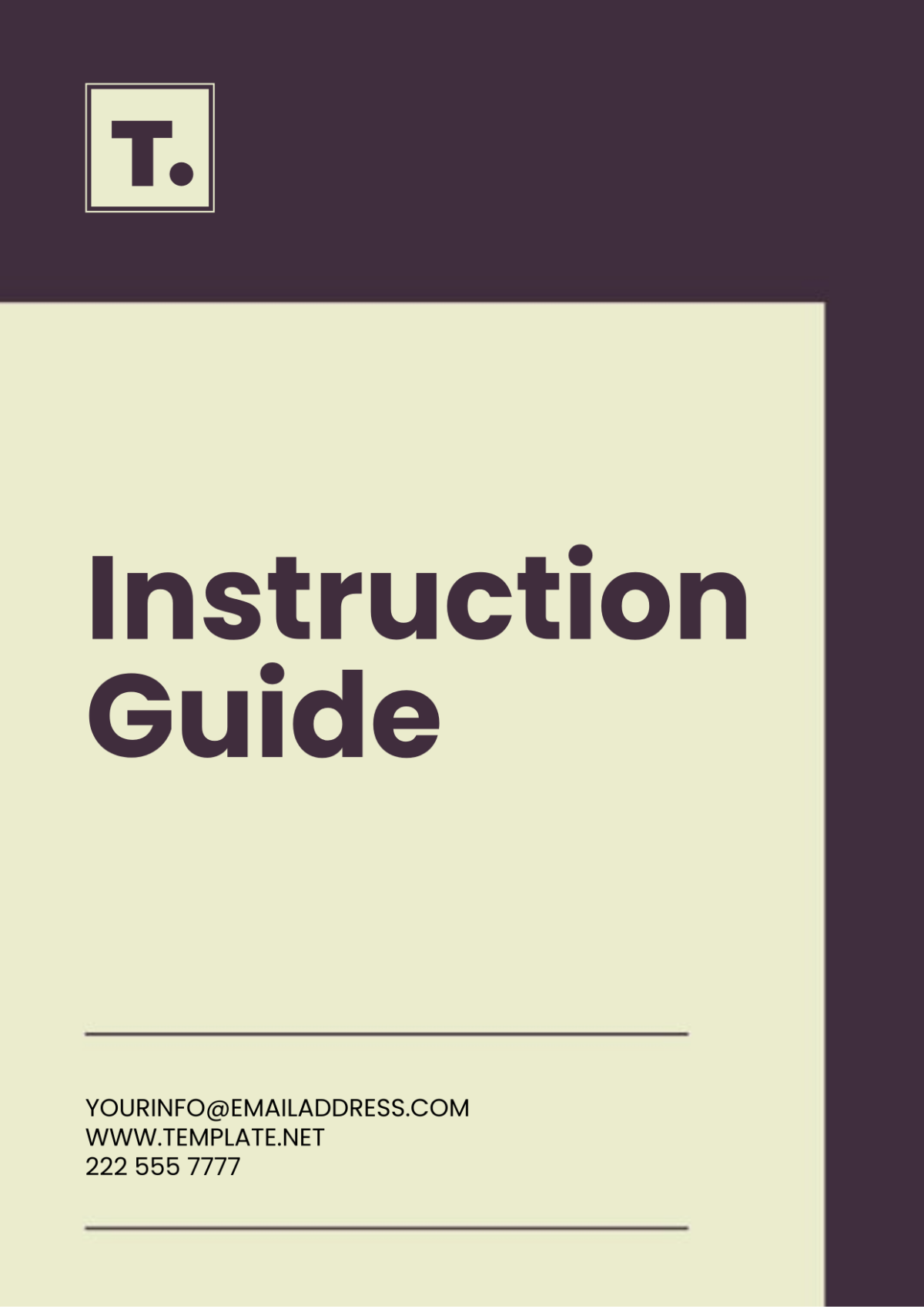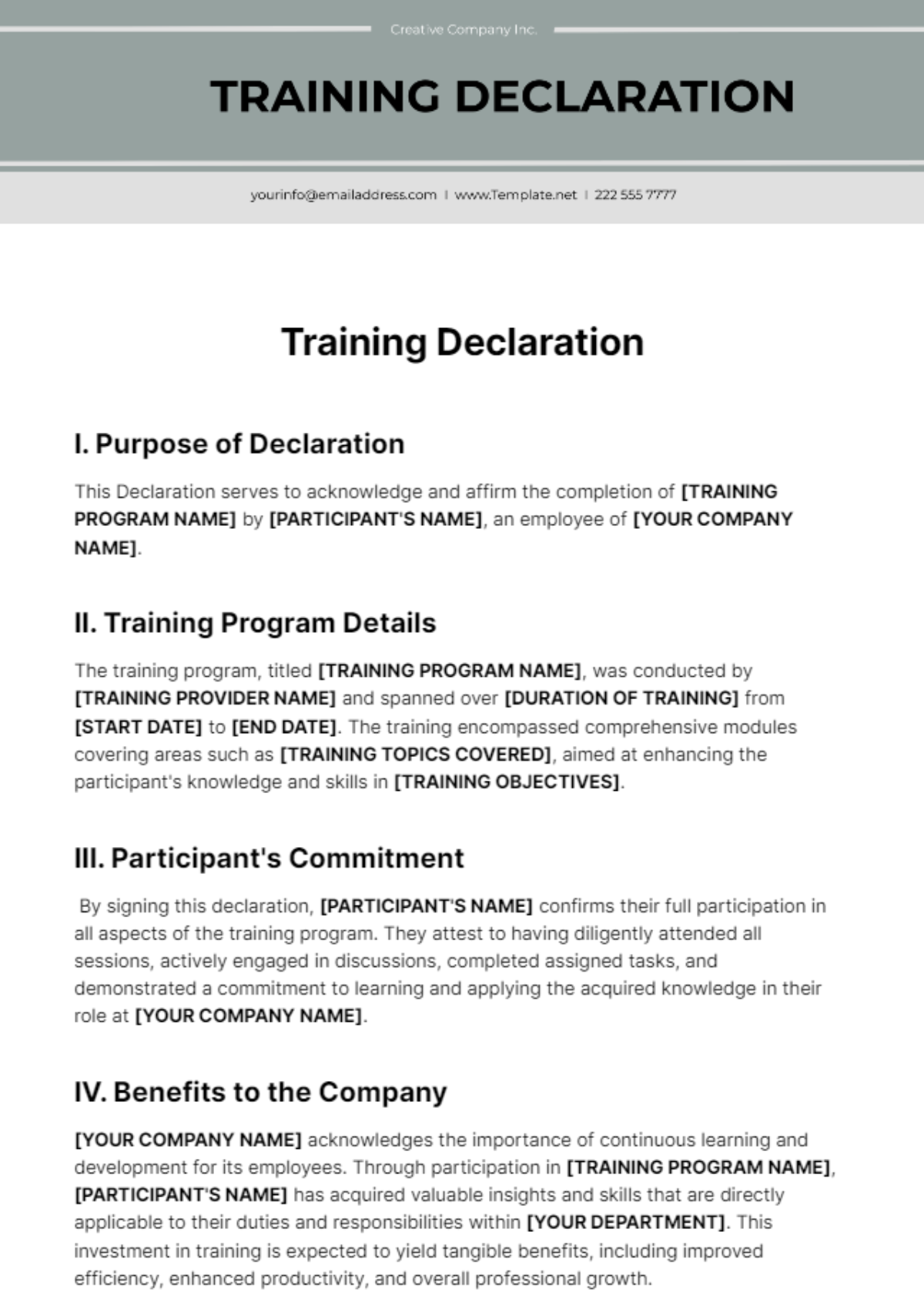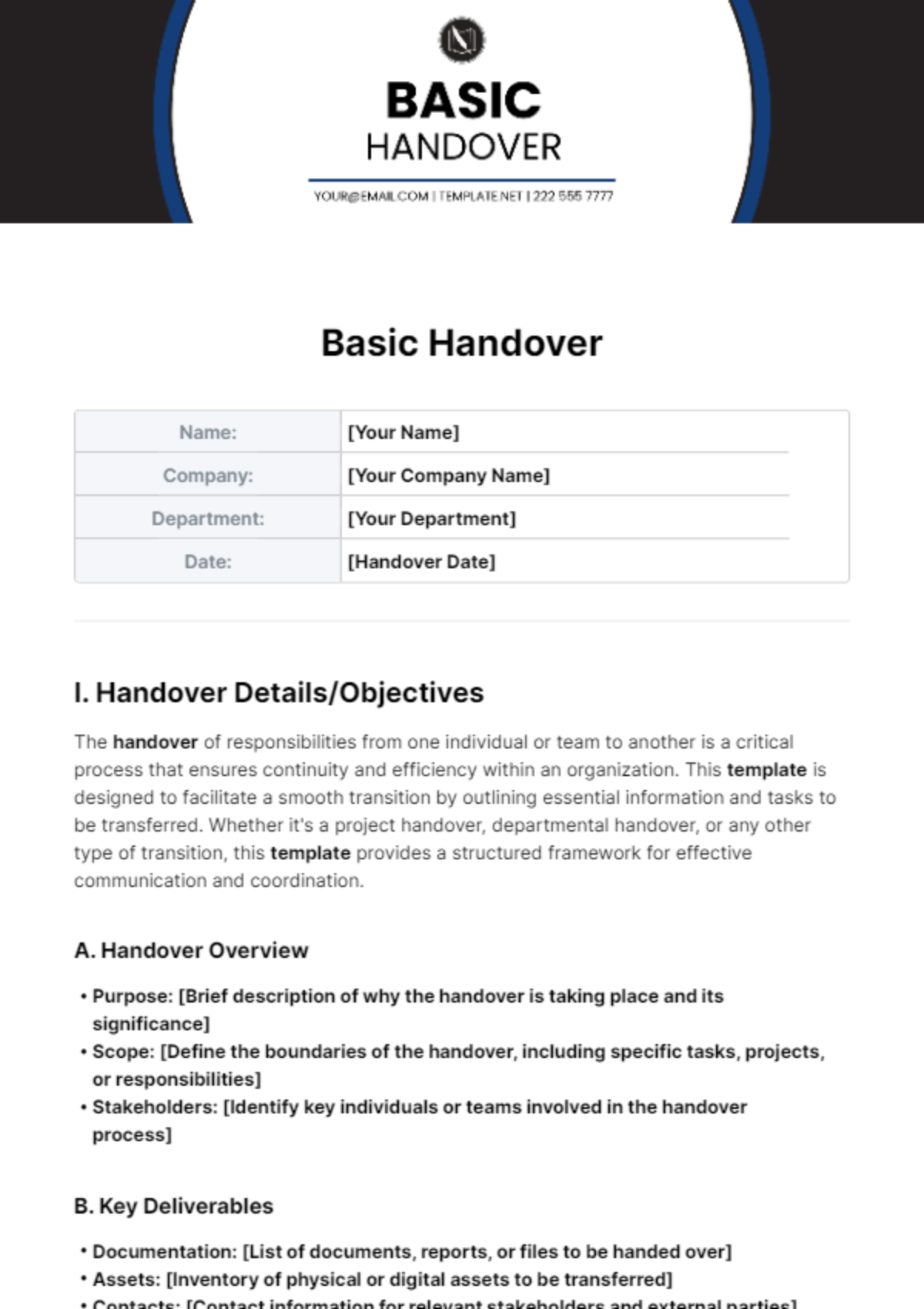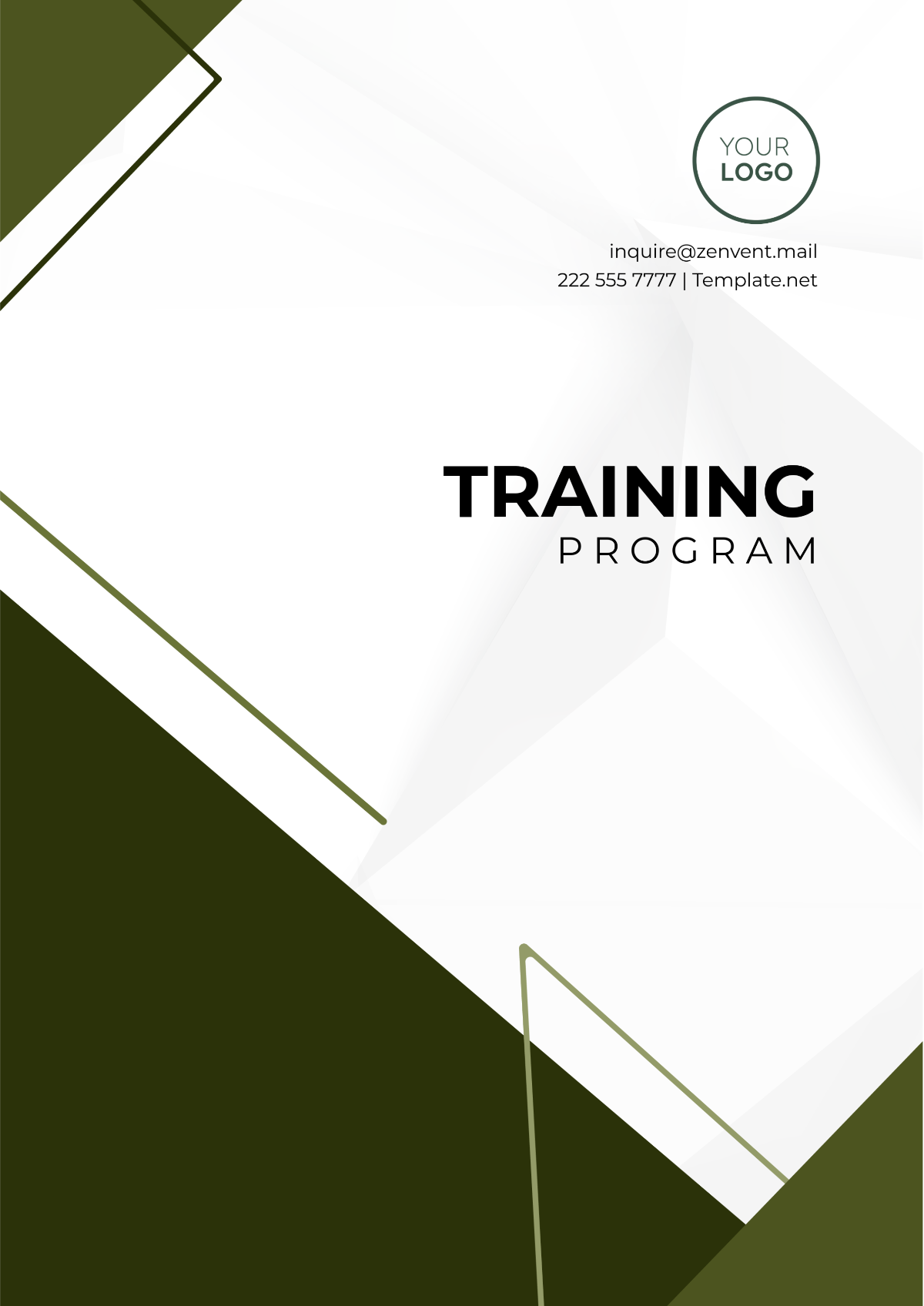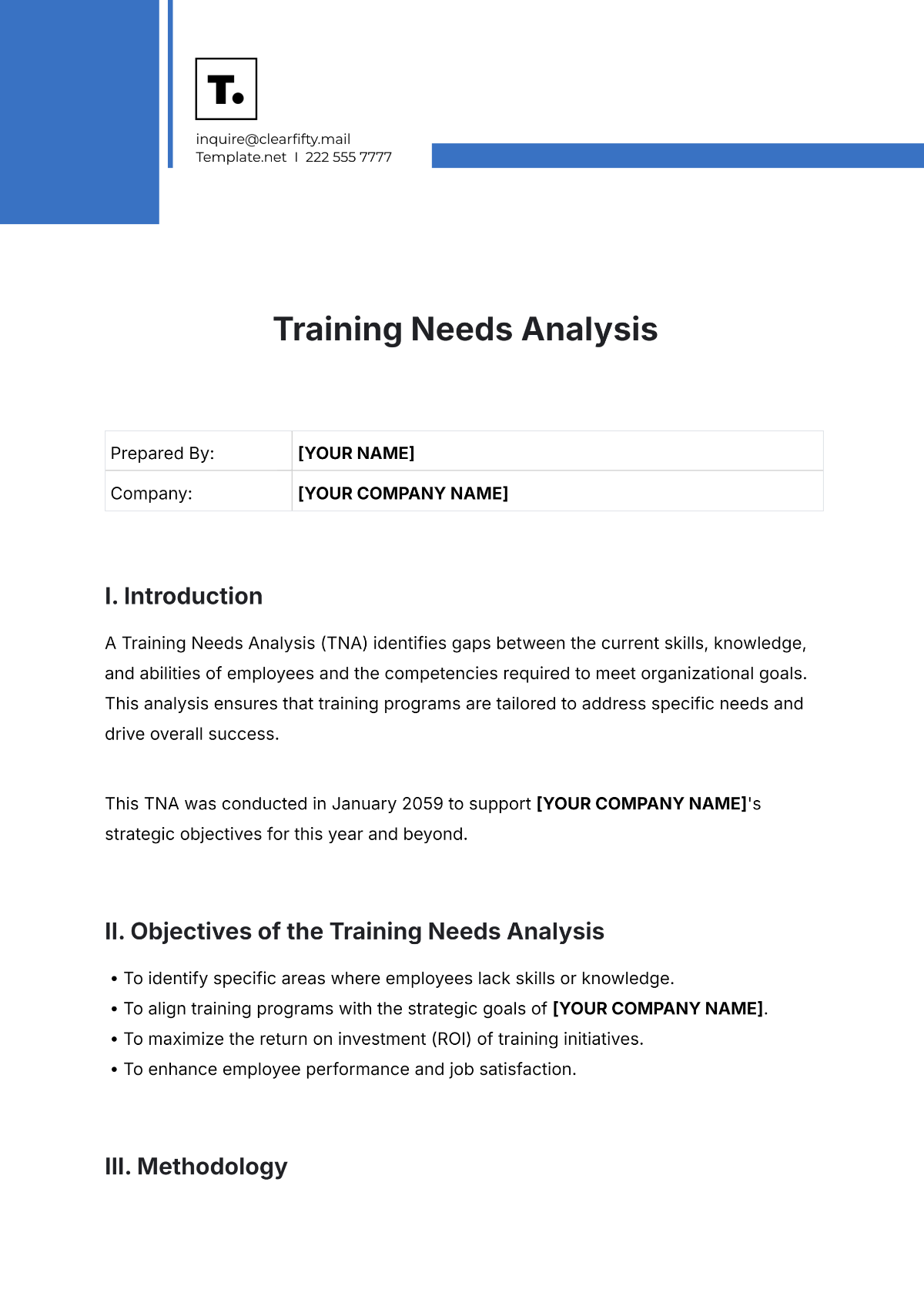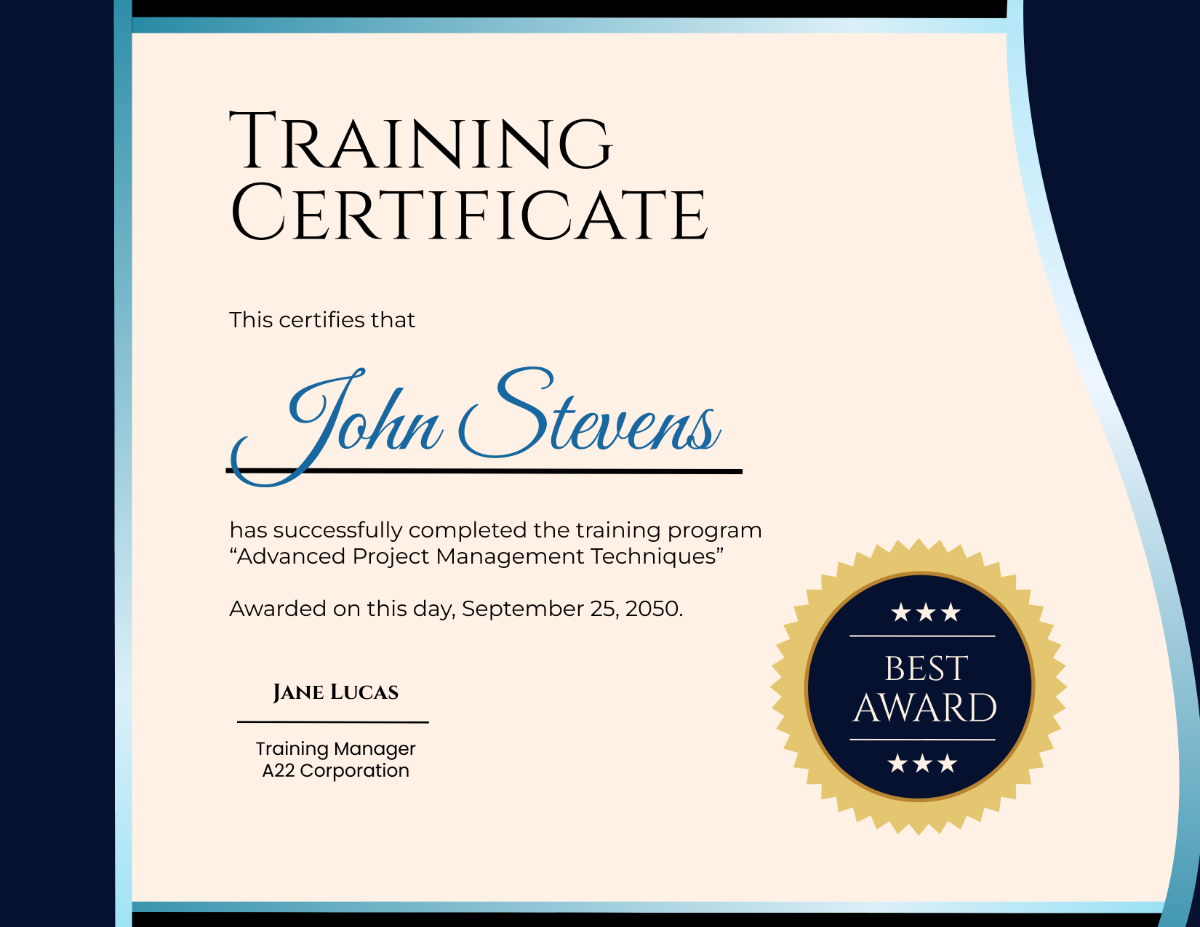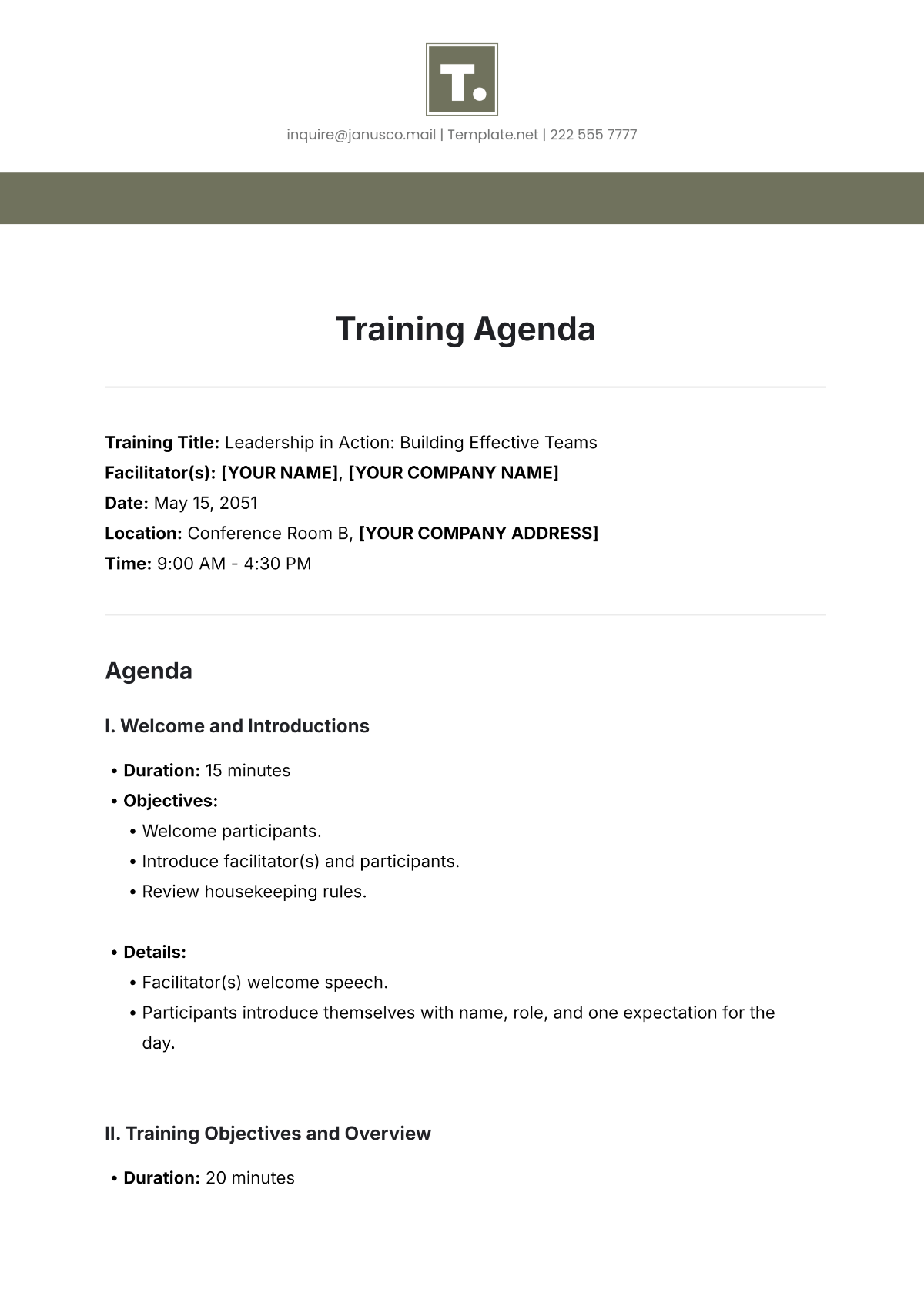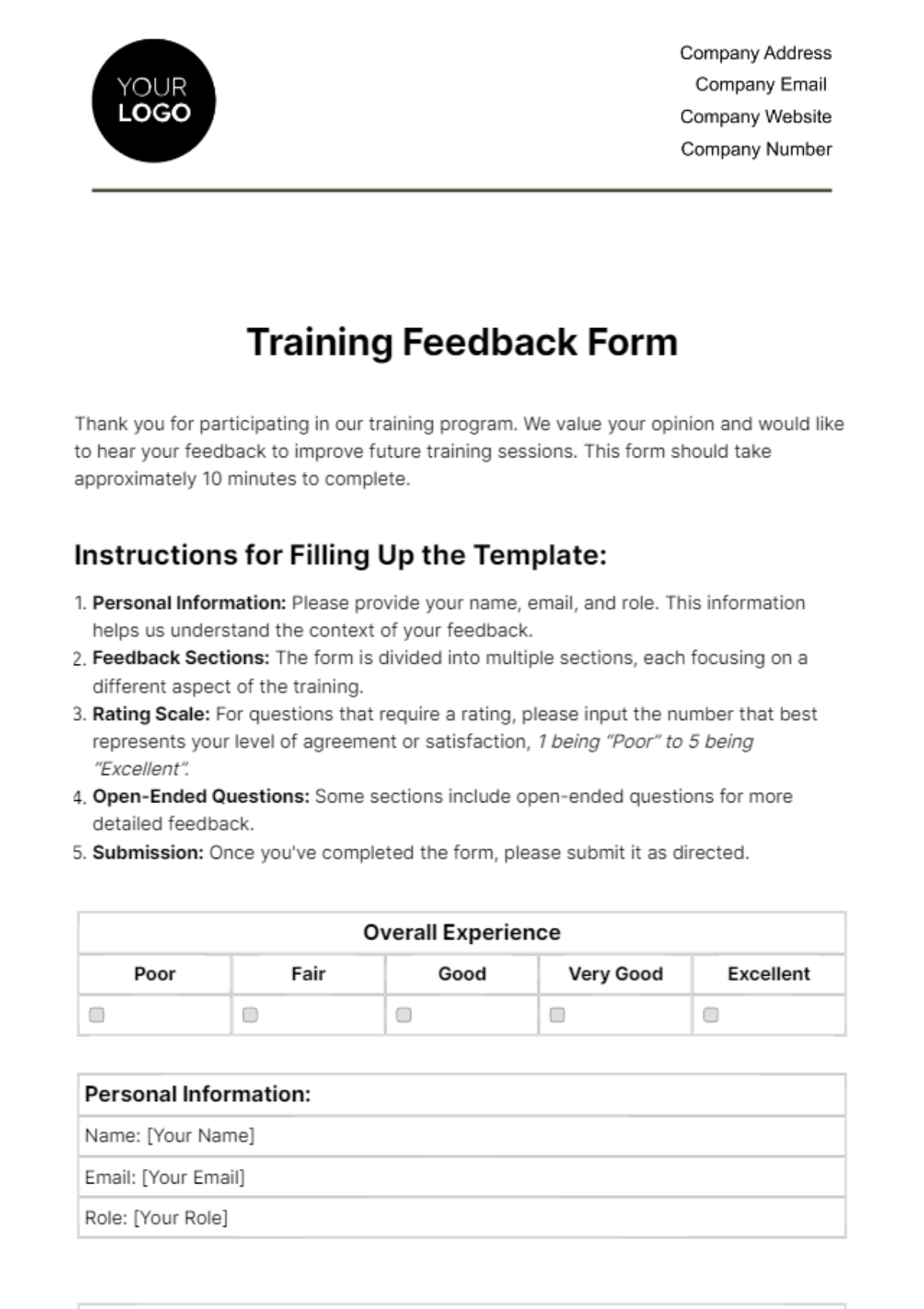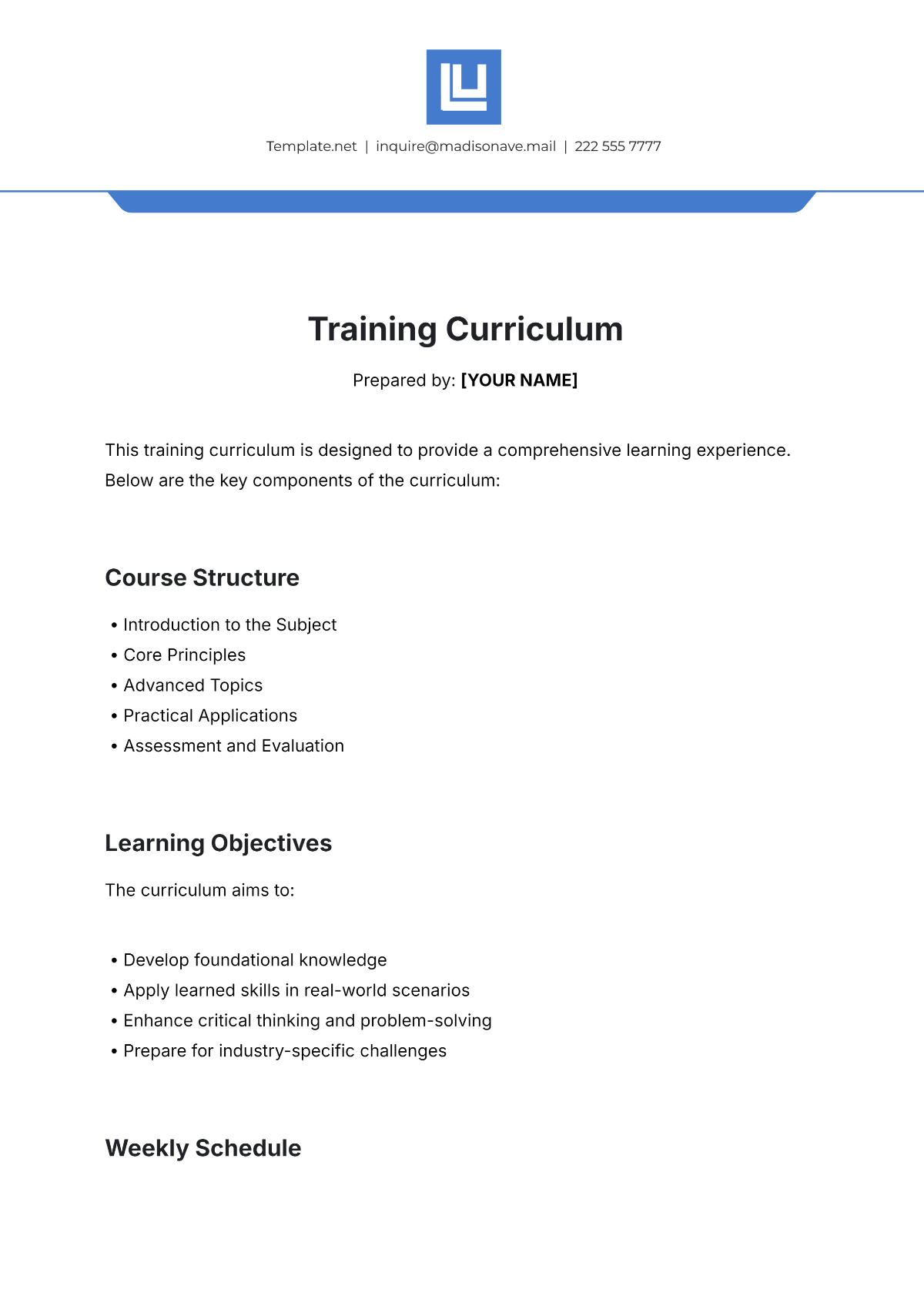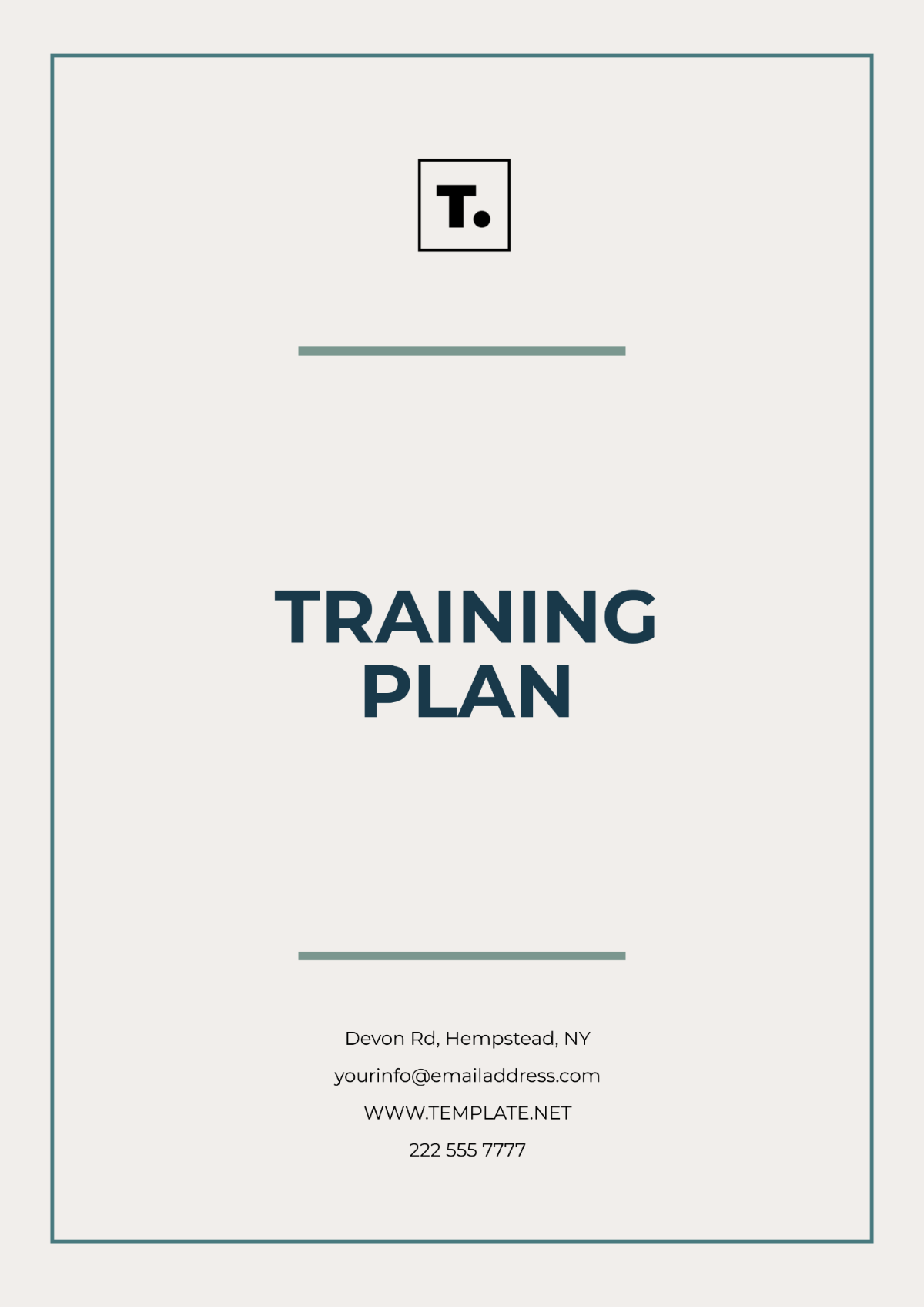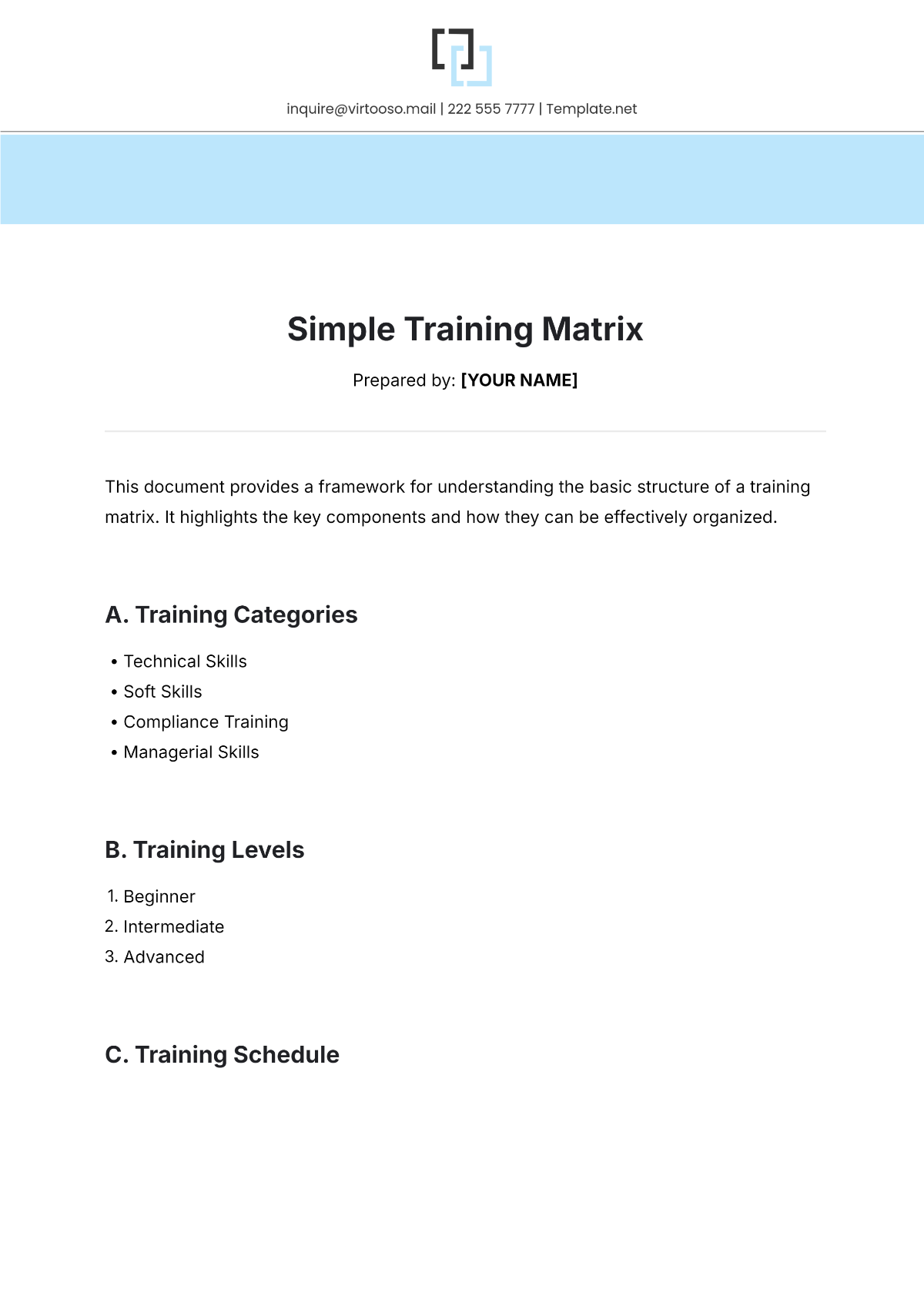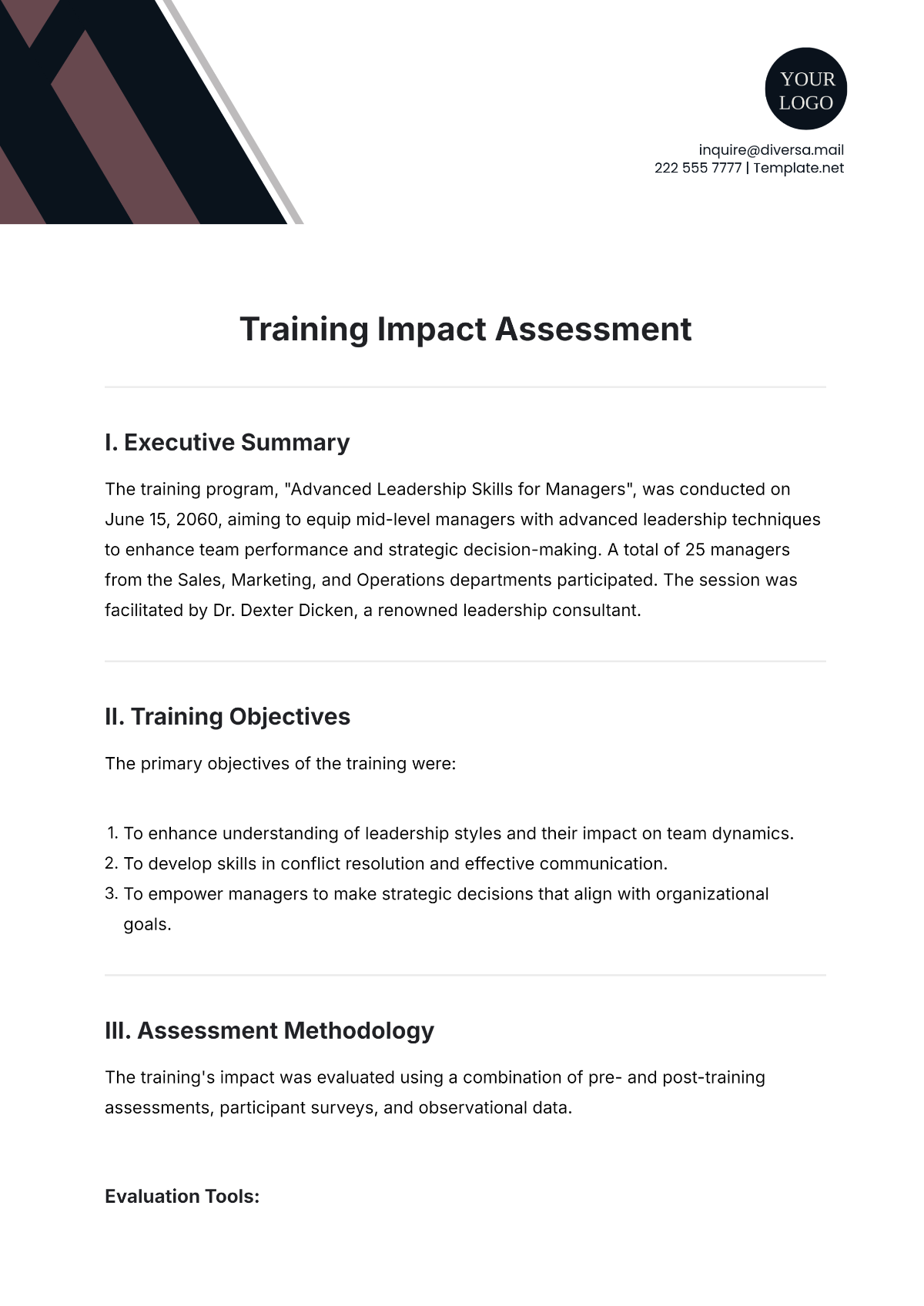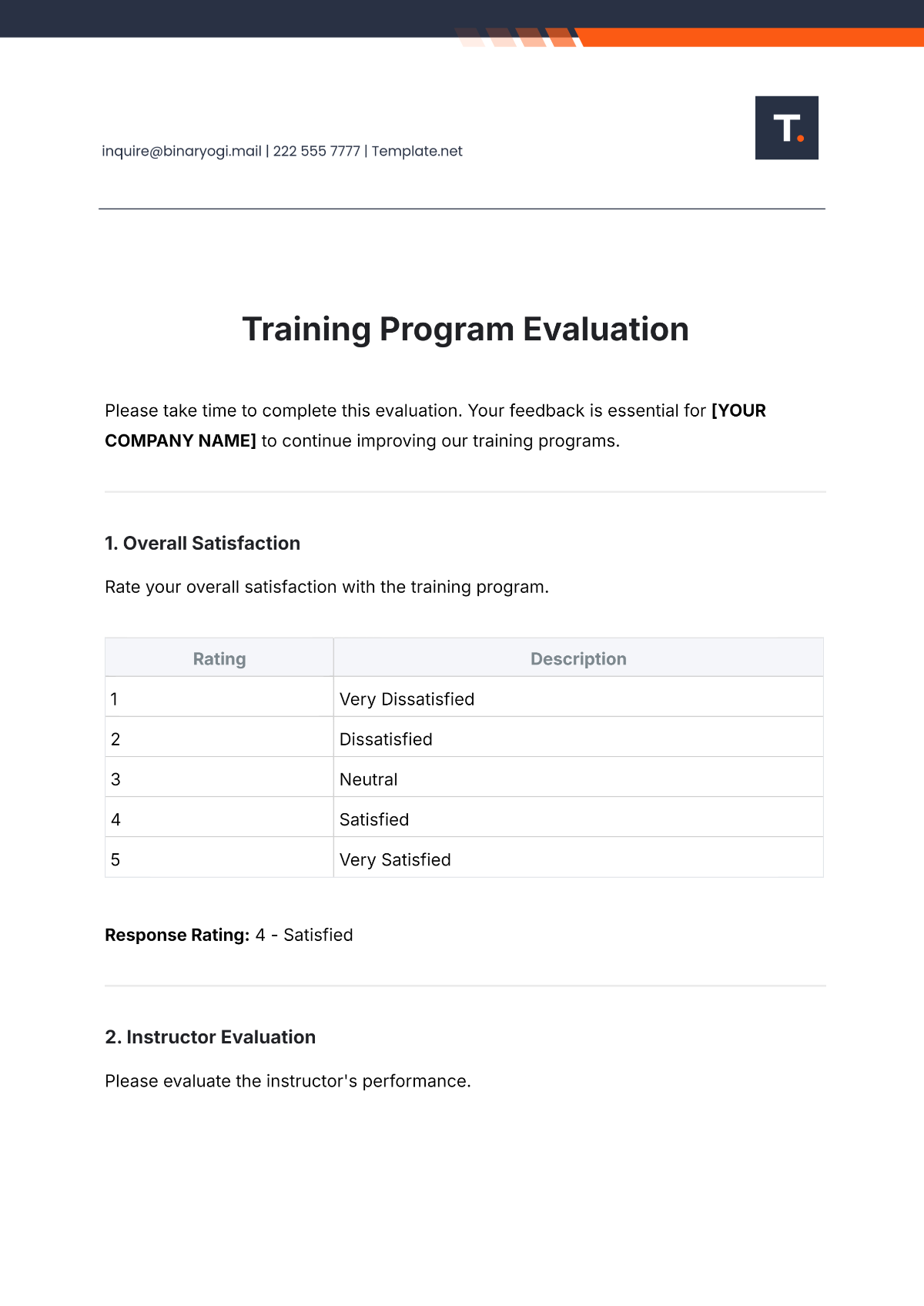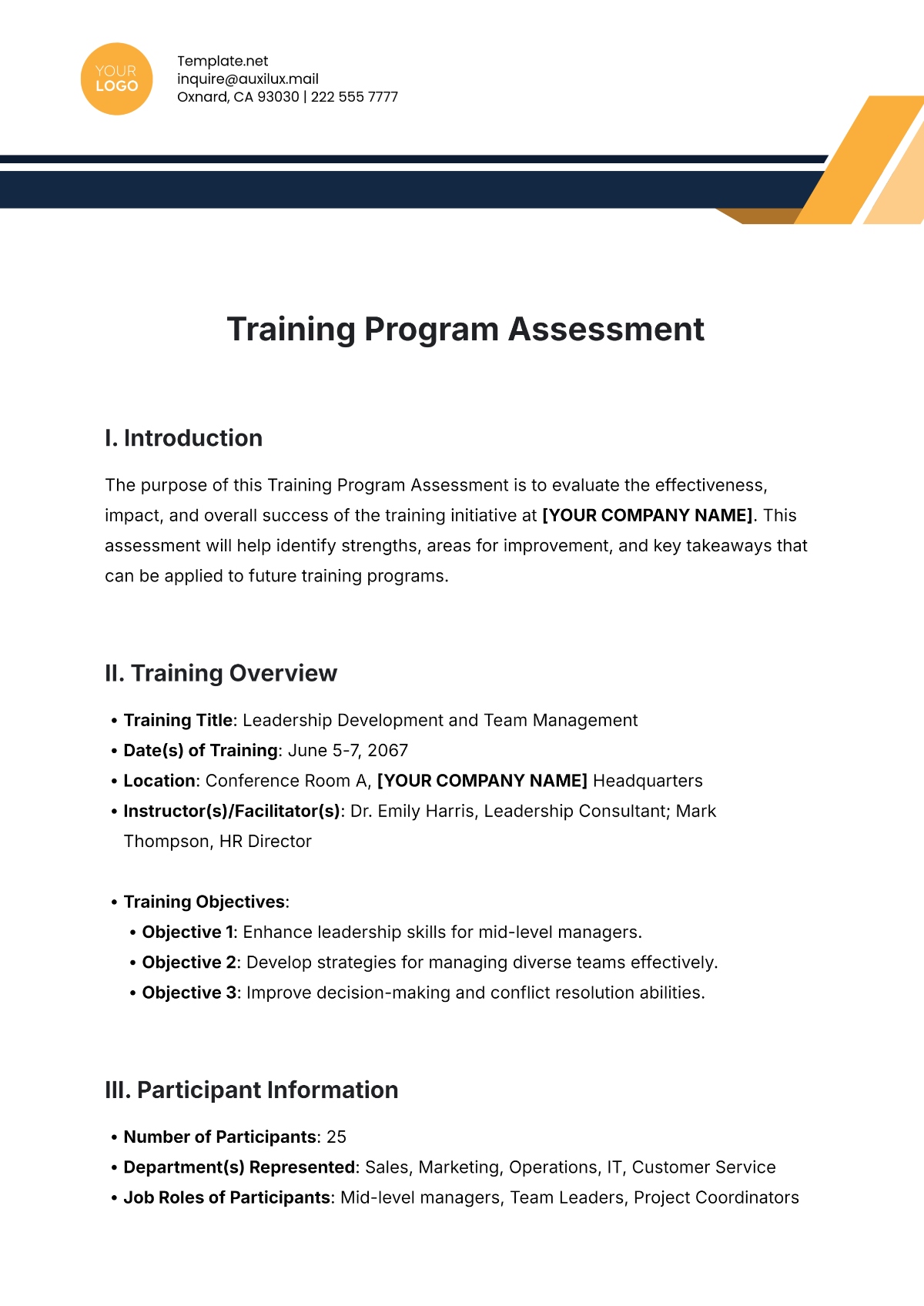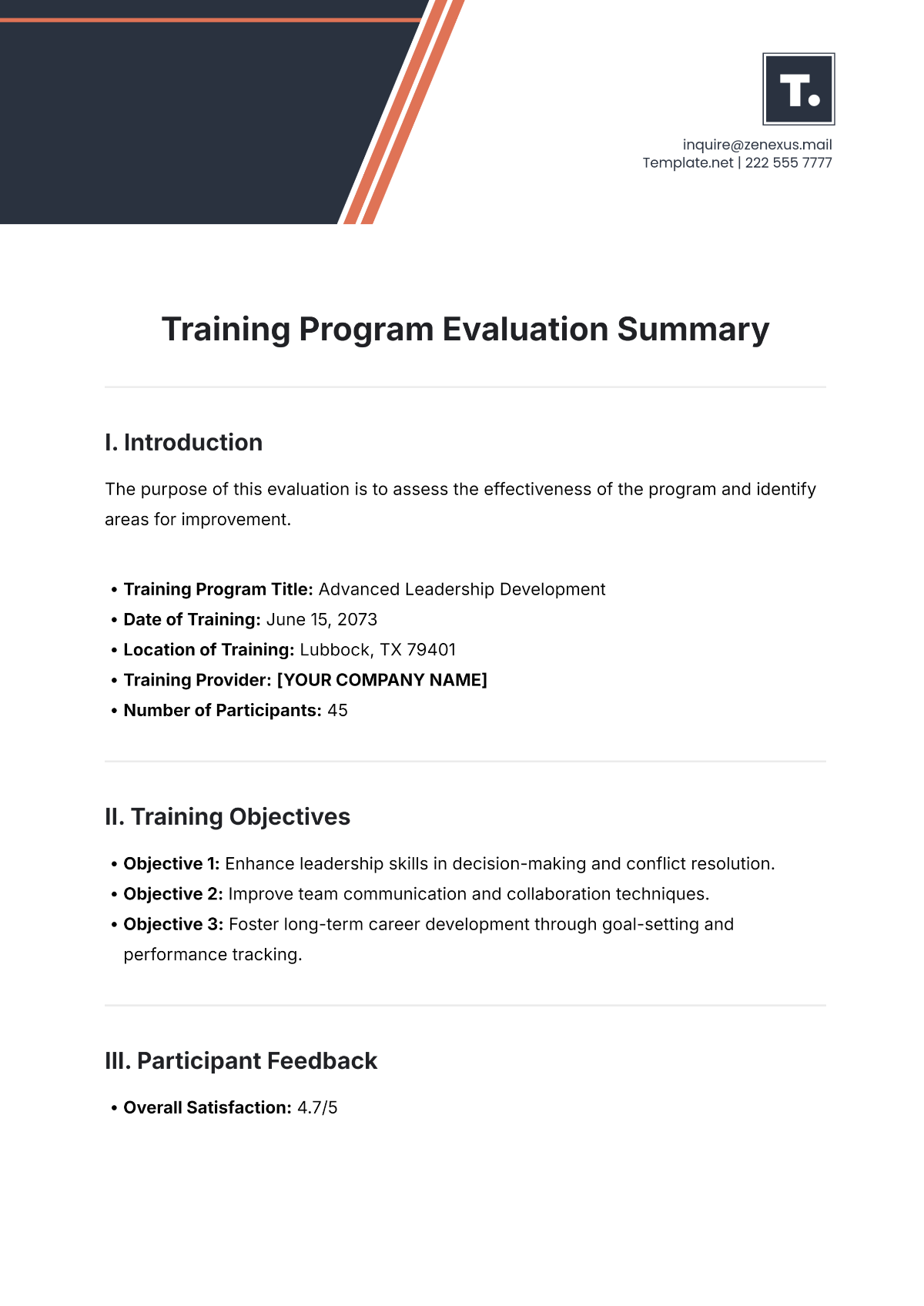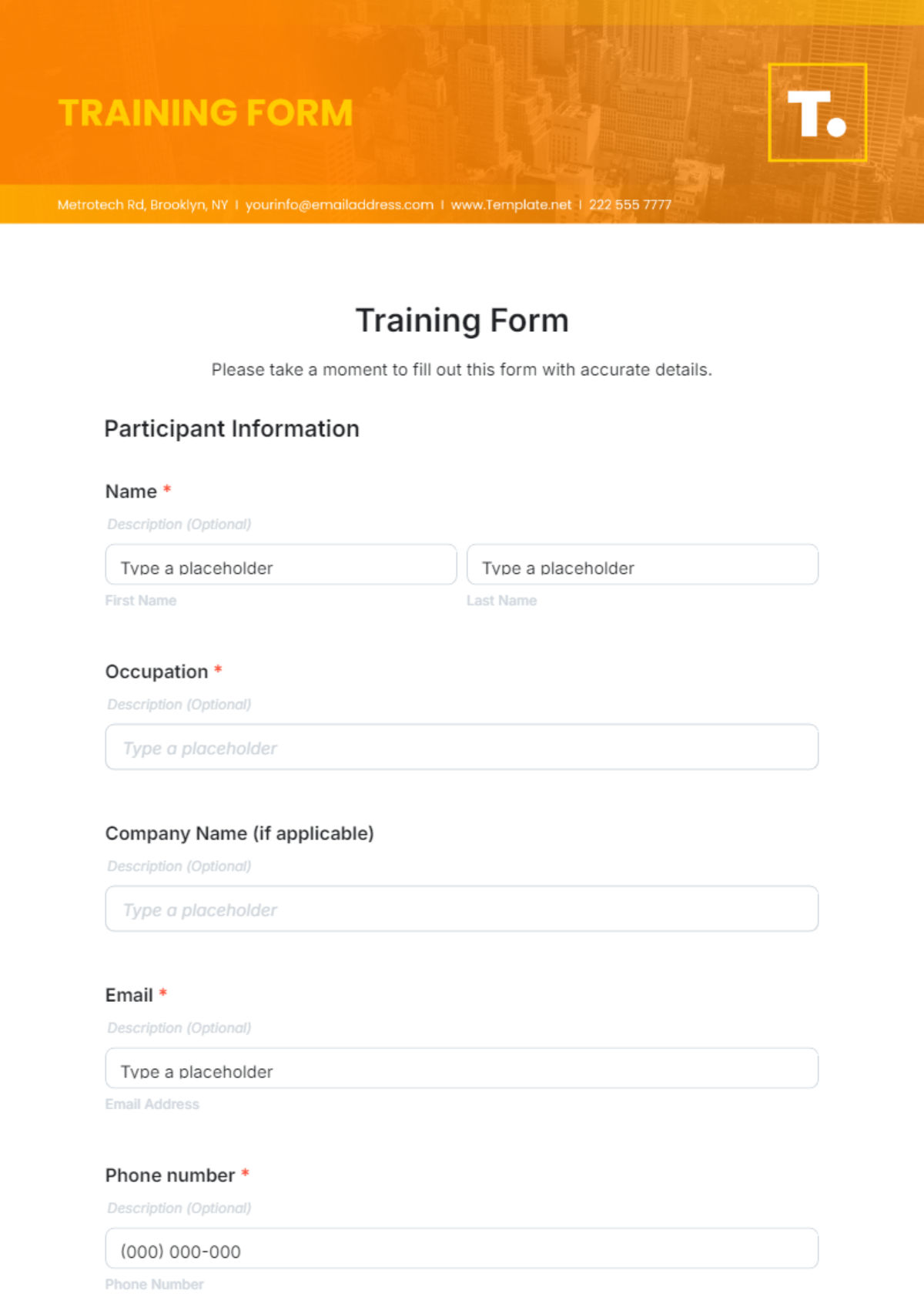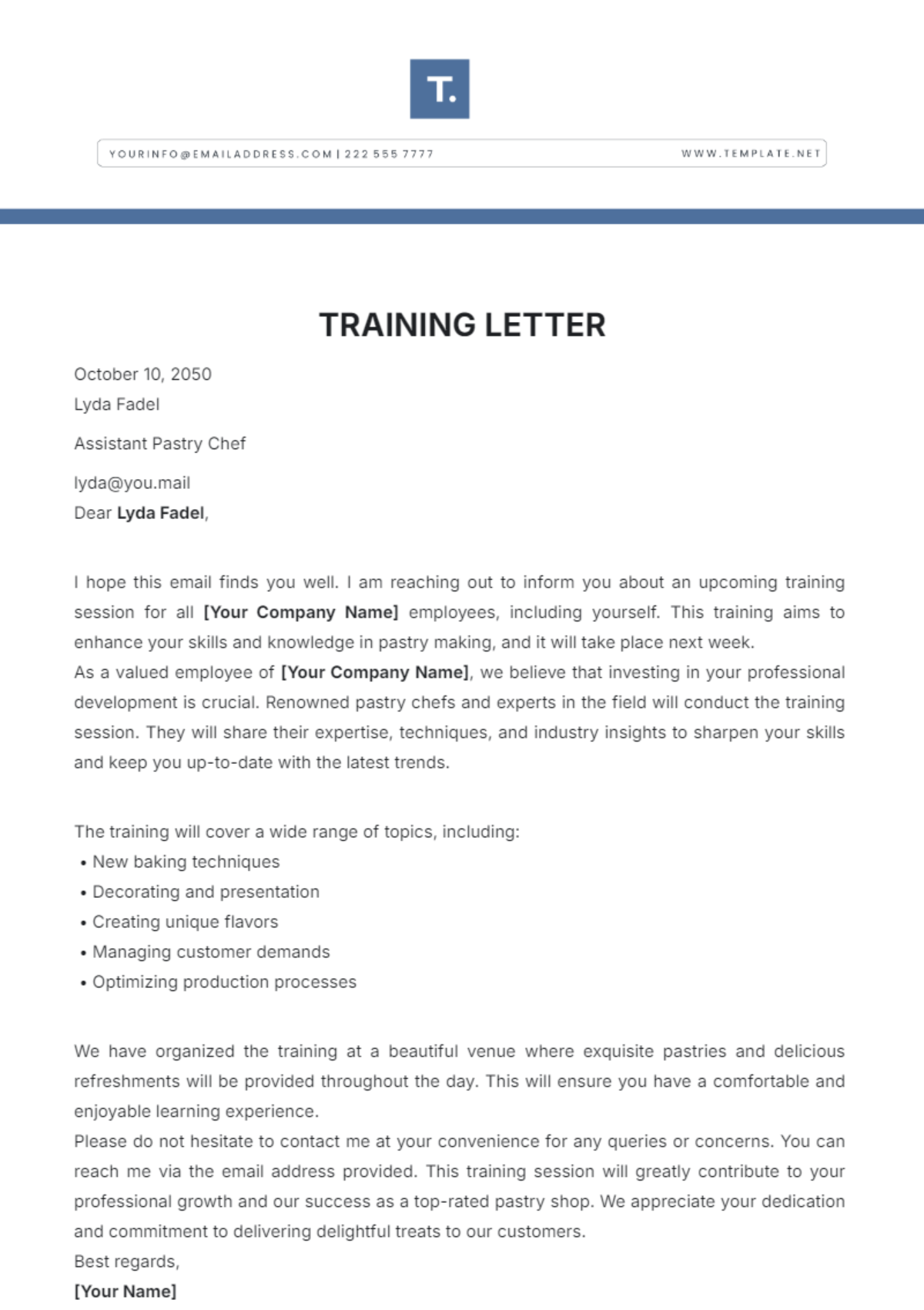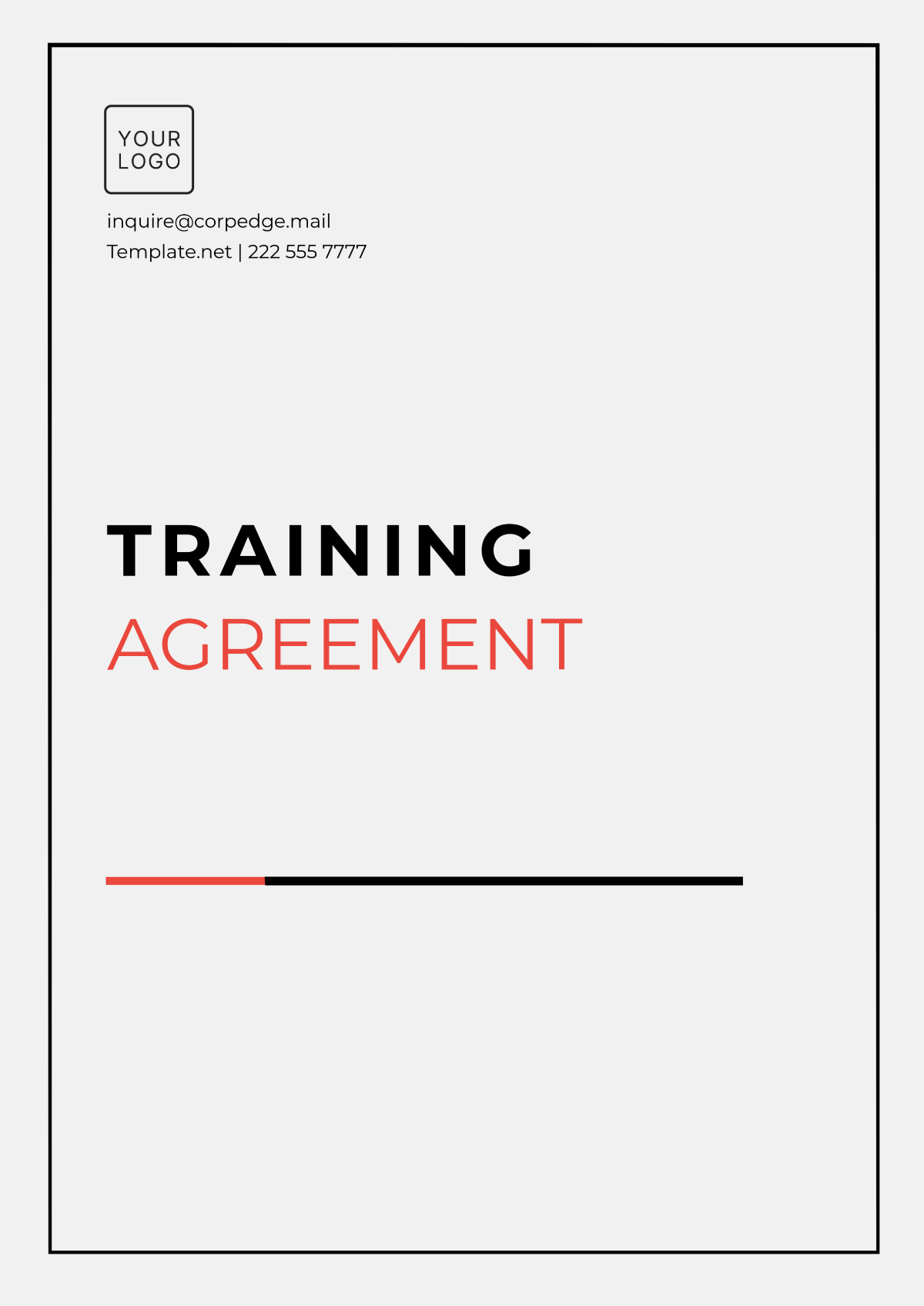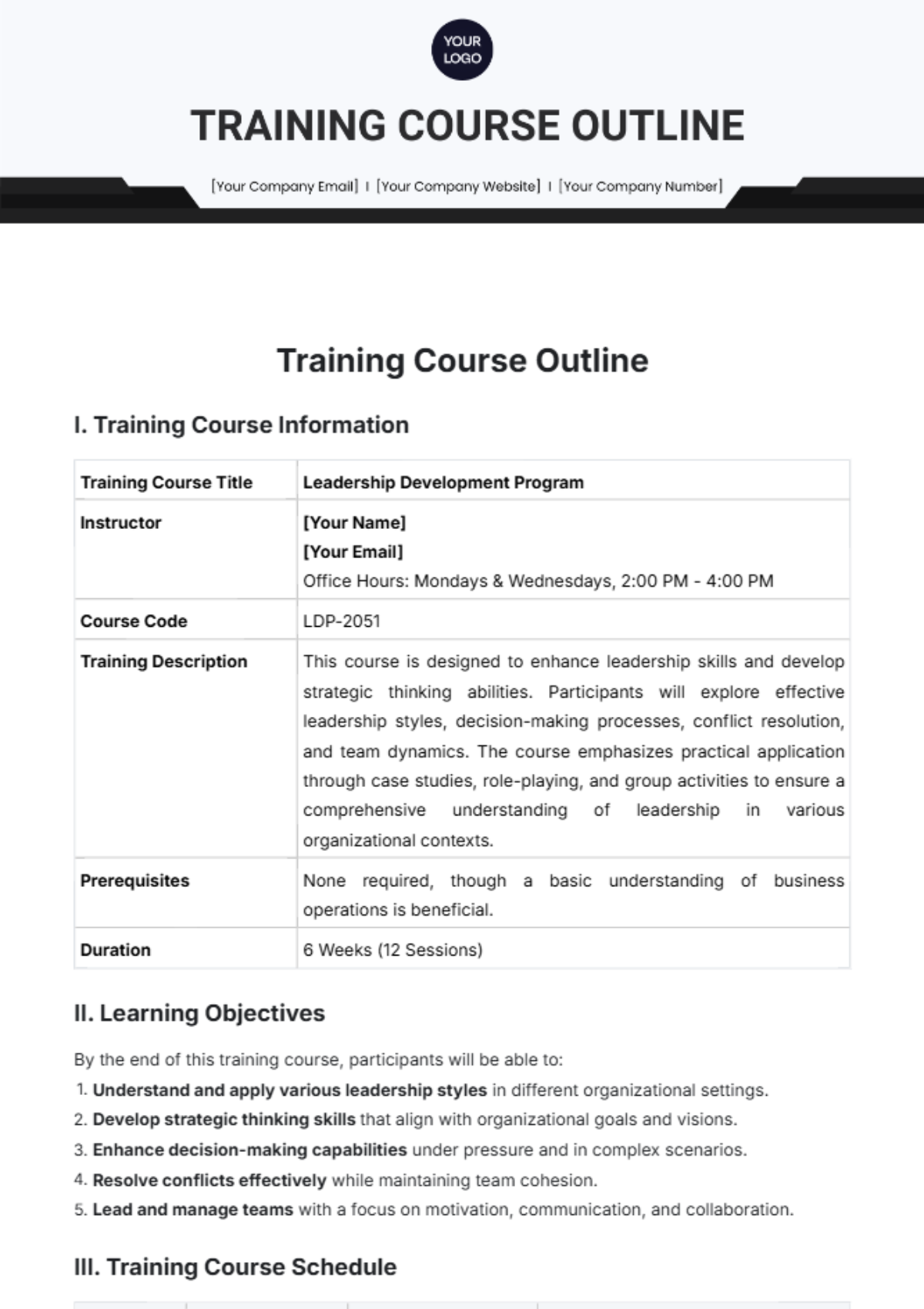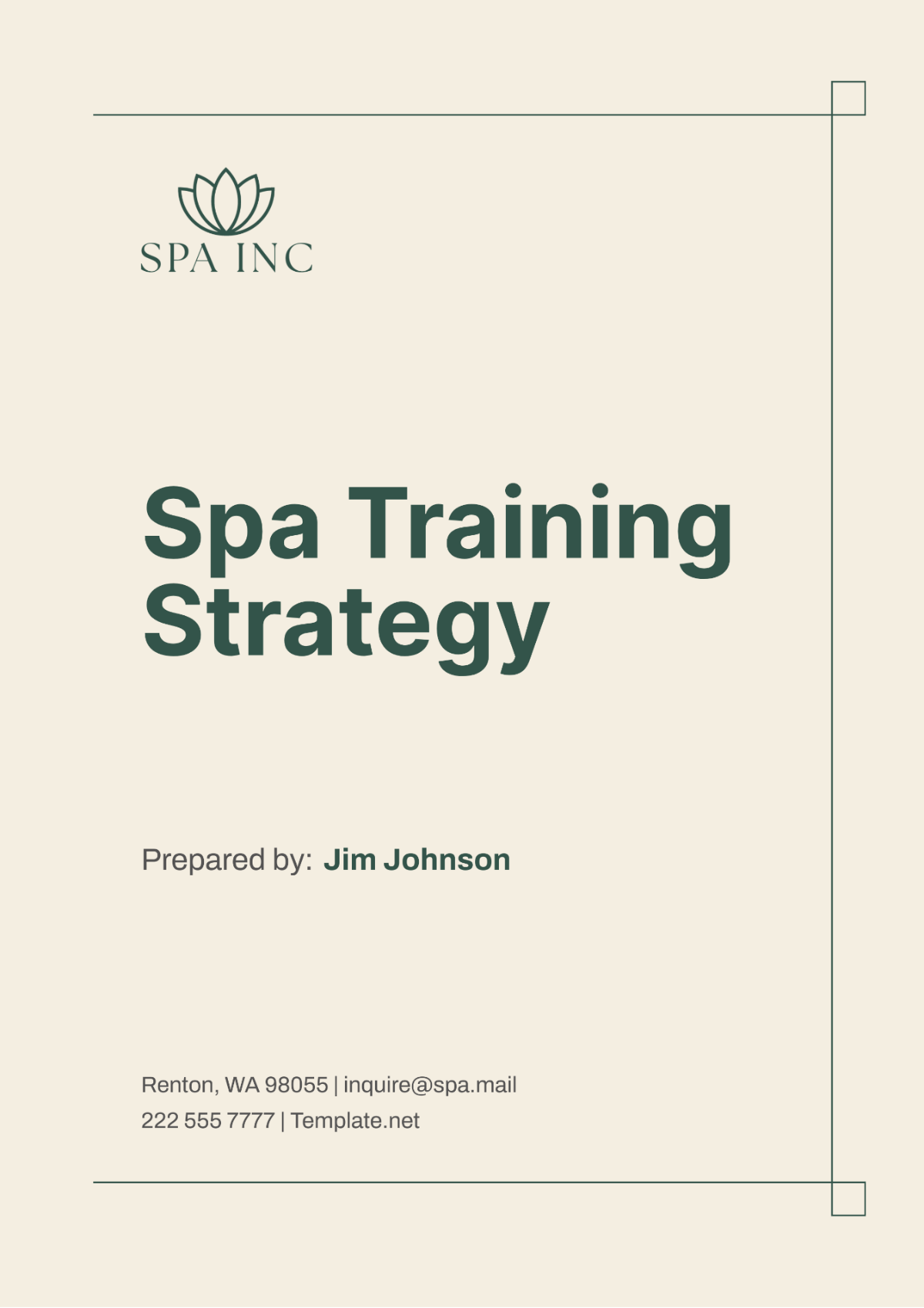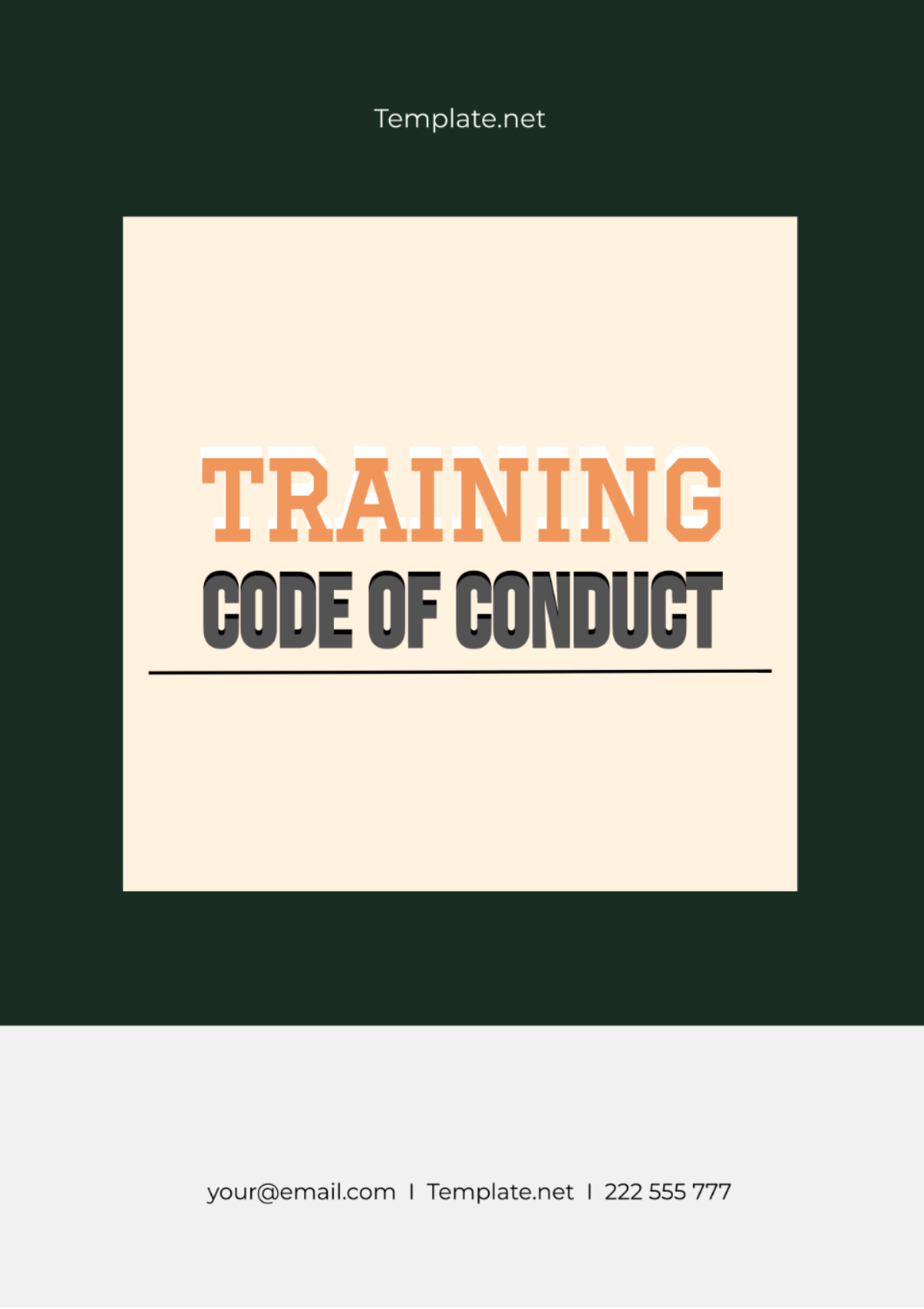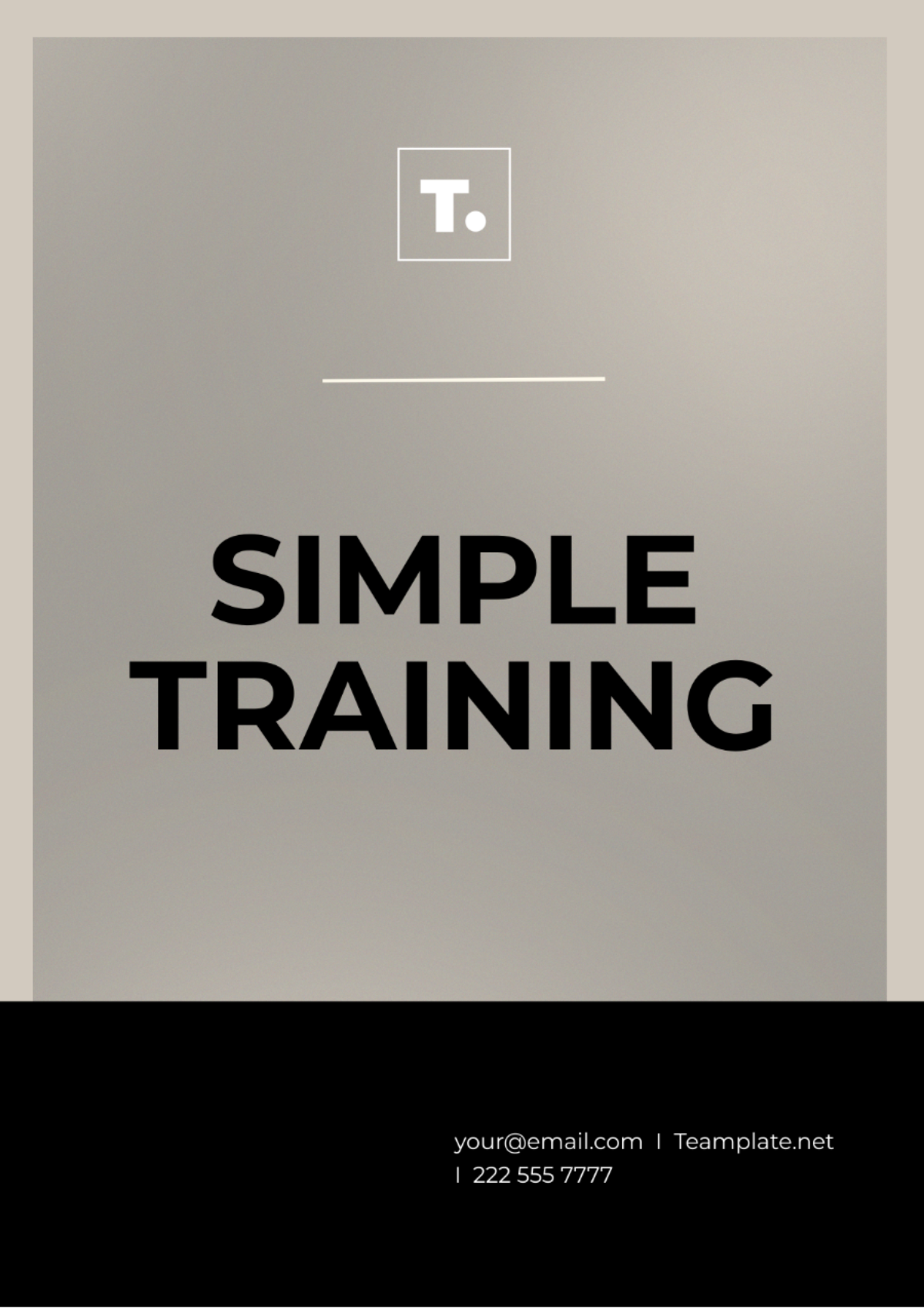Free Training Course Outline Template
Training Course Outline
I. Training Course Information
Training Course Title | Leadership Development Program |
Instructor | [Your Name] |
Course Code | LDP-2051 |
Training Description | This course is designed to enhance leadership skills and develop strategic thinking abilities. Participants will explore effective leadership styles, decision-making processes, conflict resolution, and team dynamics. The course emphasizes practical application through case studies, role-playing, and group activities to ensure a comprehensive understanding of leadership in various organizational contexts. |
Prerequisites | None required, though a basic understanding of business operations is beneficial. |
Duration | 6 Weeks (12 Sessions) |
II. Learning Objectives
By the end of this training course, participants will be able to:
Understand and apply various leadership styles in different organizational settings.
Develop strategic thinking skills that align with organizational goals and visions.
Enhance decision-making capabilities under pressure and in complex scenarios.
Resolve conflicts effectively while maintaining team cohesion.
Lead and manage teams with a focus on motivation, communication, and collaboration.
III. Training Course Schedule
Week | Topics Covered | Readings | Assignments/Activities |
|---|---|---|---|
1-2 | Foundations of Leadership
| Chapter 1 & 2 from "The Leadership Handbook" by Laura Green | Assignment 1: "Self-Assessment of Leadership Style and Personal Reflection" |
3-4 | Strategic Thinking and Decision-Making
| Chapter 3 from "Strategic Leadership" by James Roberts | Group Activity: "Case Study Analysis on Strategic Decision-Making in Real Organizations" |
5 | Conflict Resolution and Team Dynamics
| Chapter 4 from "Managing Conflict in Teams" by Sarah Brown | Role-Playing Activity: "Simulated Conflict Resolution Scenarios: Applying Theory to Practice" |
6 | Leadership in Action
| Chapter 5 & 6 from "Leadership in Practice" by Emily Turner | Final Project: "Creating a Leadership Development Plan for Your Organization: Presentation and Feedback Session" |
IV. Assessment Methods
Students will be assessed based on the following:
Assignment 1 (20%):
A reflective paper on personal leadership style, including a self-assessment and analysis of strengths and areas for improvement.
Group Activity (20%):
A collaborative analysis of a case study, focusing on strategic decision-making and leadership effectiveness.
Role-Playing Activity (20%):
Participation in simulated conflict resolution scenarios, demonstrating the application of learned strategies.
Final Project (40%):
Development and presentation of a comprehensive leadership development plan tailored to an organizational context.
V. Required Texts and Resources
A. Textbooks:
"The Leadership Handbook" by Laura Green
ISBN: 978-1-234-56789-1
"Strategic Leadership" by James Roberts
ISBN: 978-1-234-56789-2
"Managing Conflict in Teams" by Sarah Brown
ISBN: 978-1-234-56789-3
"Leadership in Practice" by Emily Turner
ISBN: 978-1-234-56789-4
B. Online Resources:
[Your Company Website]
Leadership Resource Hub
Strategic Leadership Case Studies
VI. Training Policies
A. Attendance:
Active participation is essential for the success of this course. Participants are expected to attend all sessions and engage in discussions and activities.
B. Assignments:
All assignments must be submitted by the due dates. Late submissions may result in reduced scores unless prior arrangements are made.
C. Participation:
Participants are encouraged to actively contribute to group activities, discussions, and role-playing exercises.
D. Professional Conduct:
Participants must demonstrate professionalism and respect towards instructors and peers throughout the course.
E. Communication:
For any queries or concerns, participants should reach out to [Your Name] via [Your Email]. Regular updates will be provided through [Your Company Website].
VII. Contact Information
A. Instructor:
[Your Name]
[Your Email]
B. Company Information:
[Your Company Name]
[Your Company Email]
[Your Company Address]
